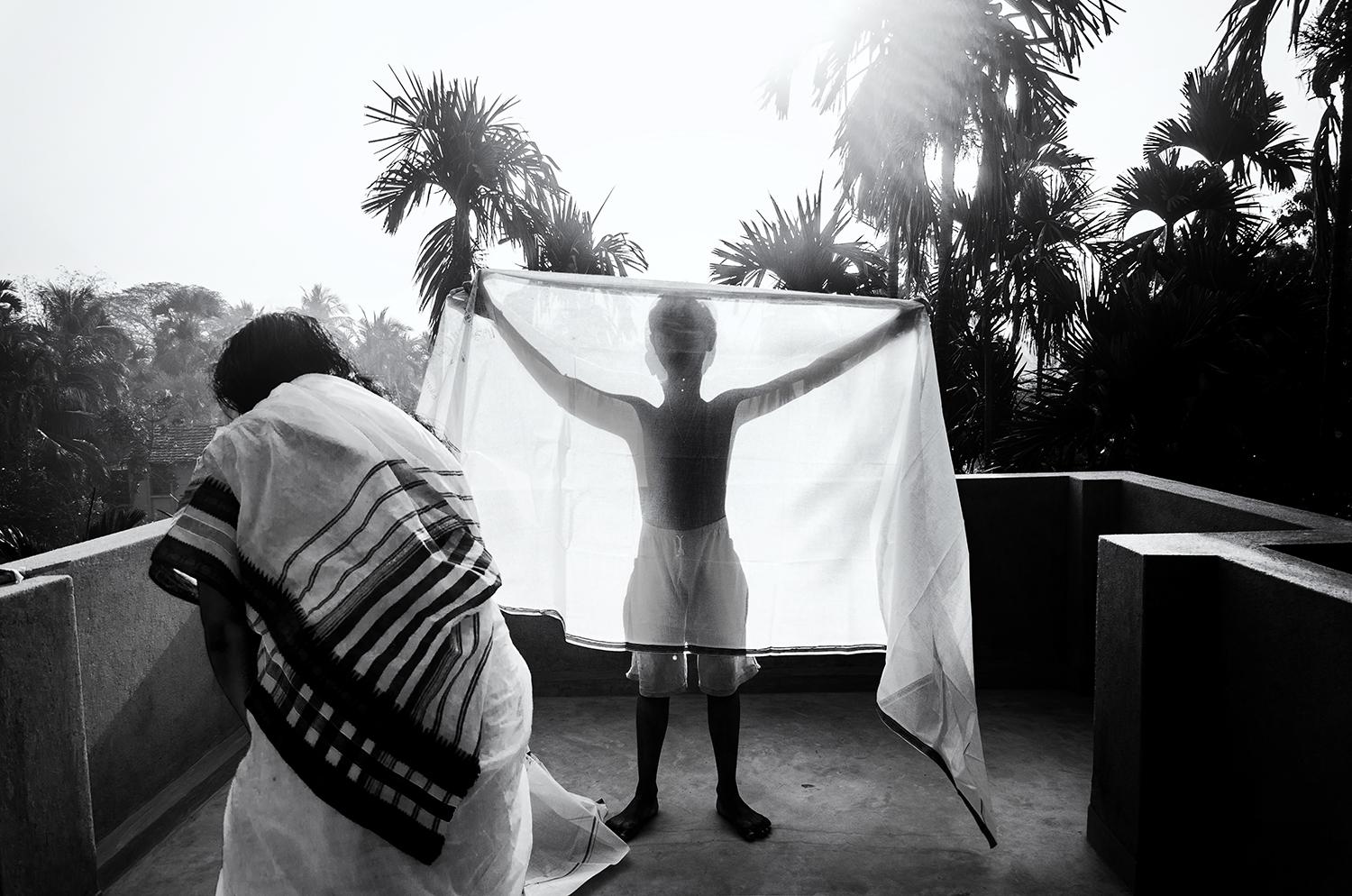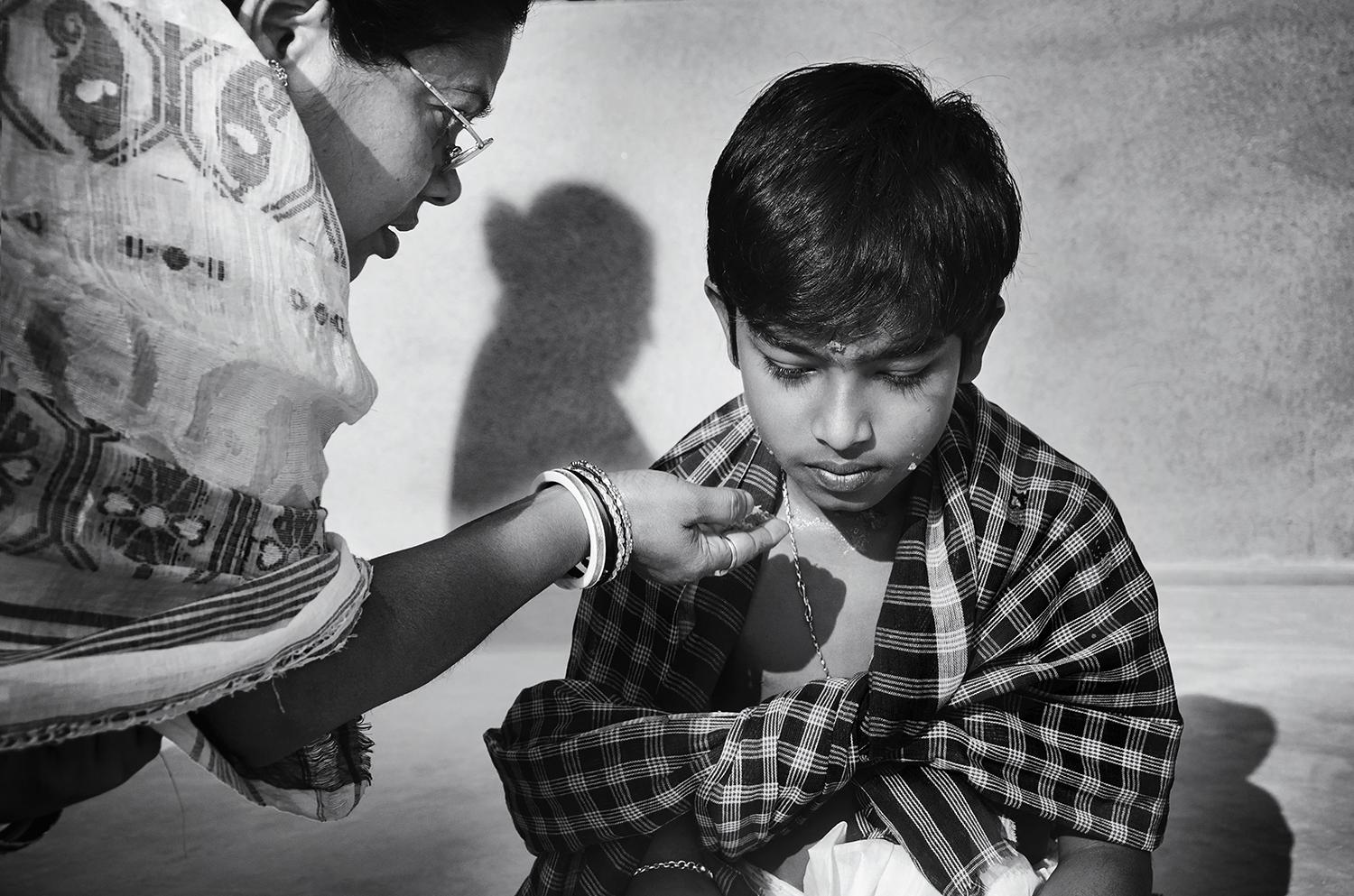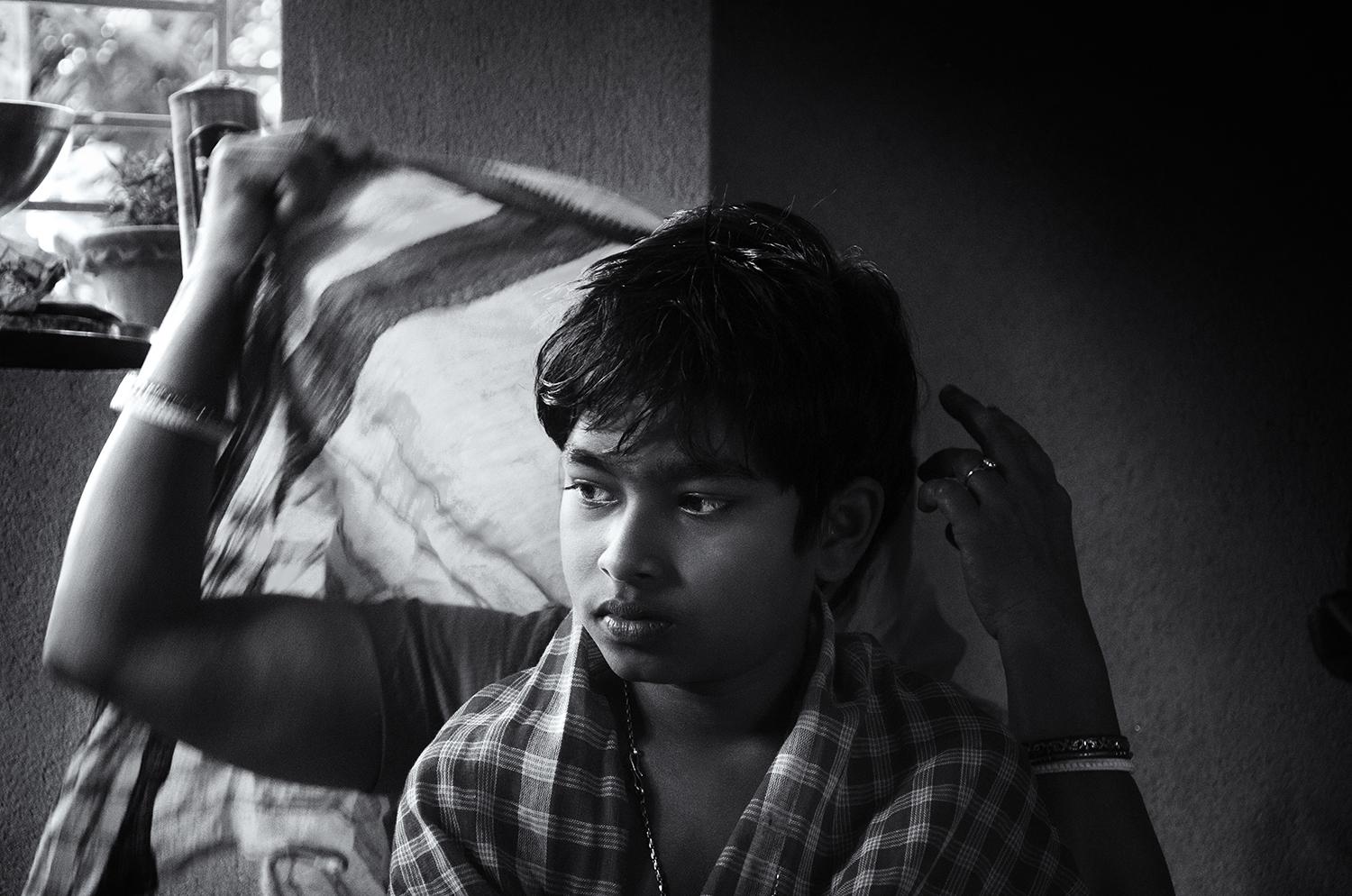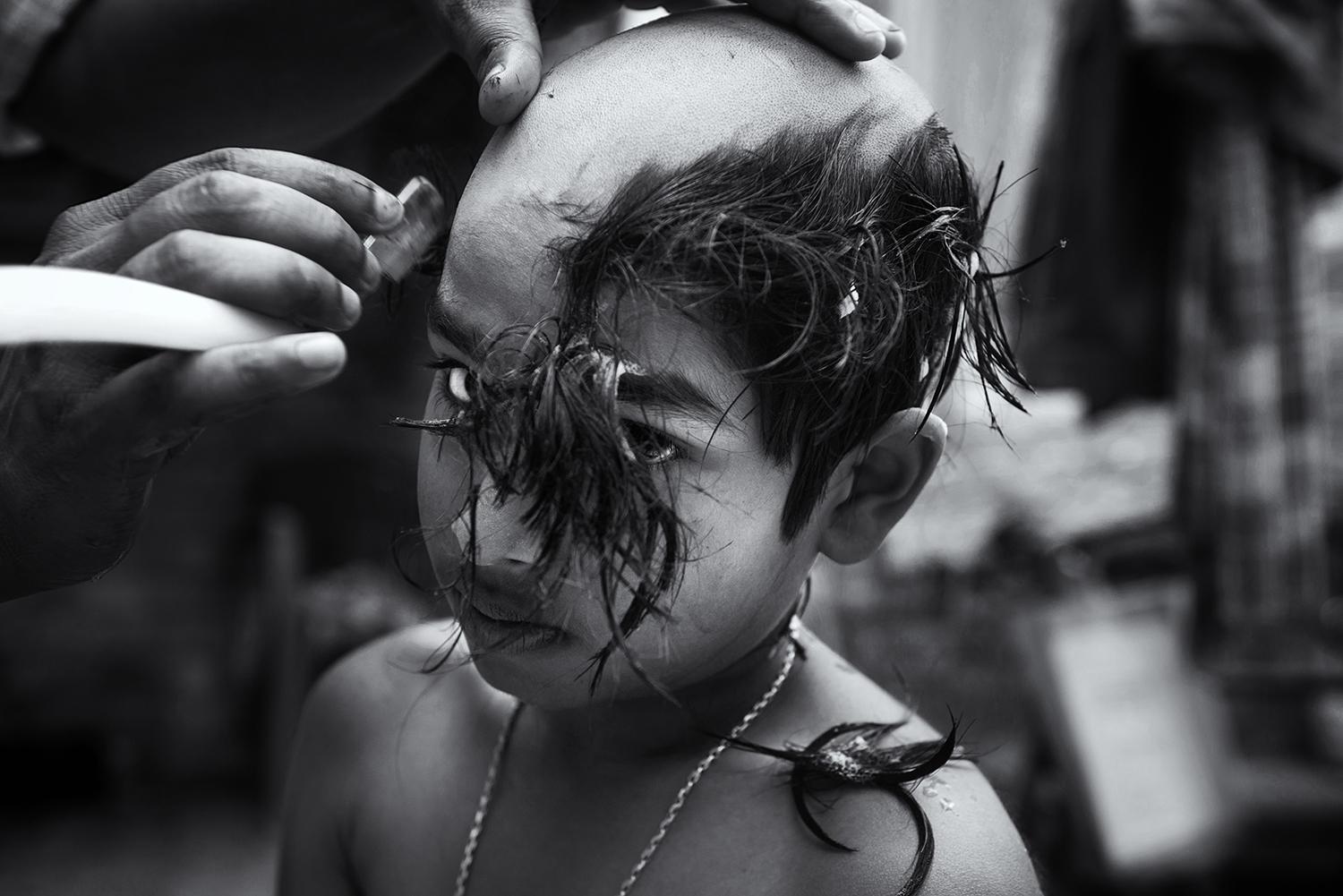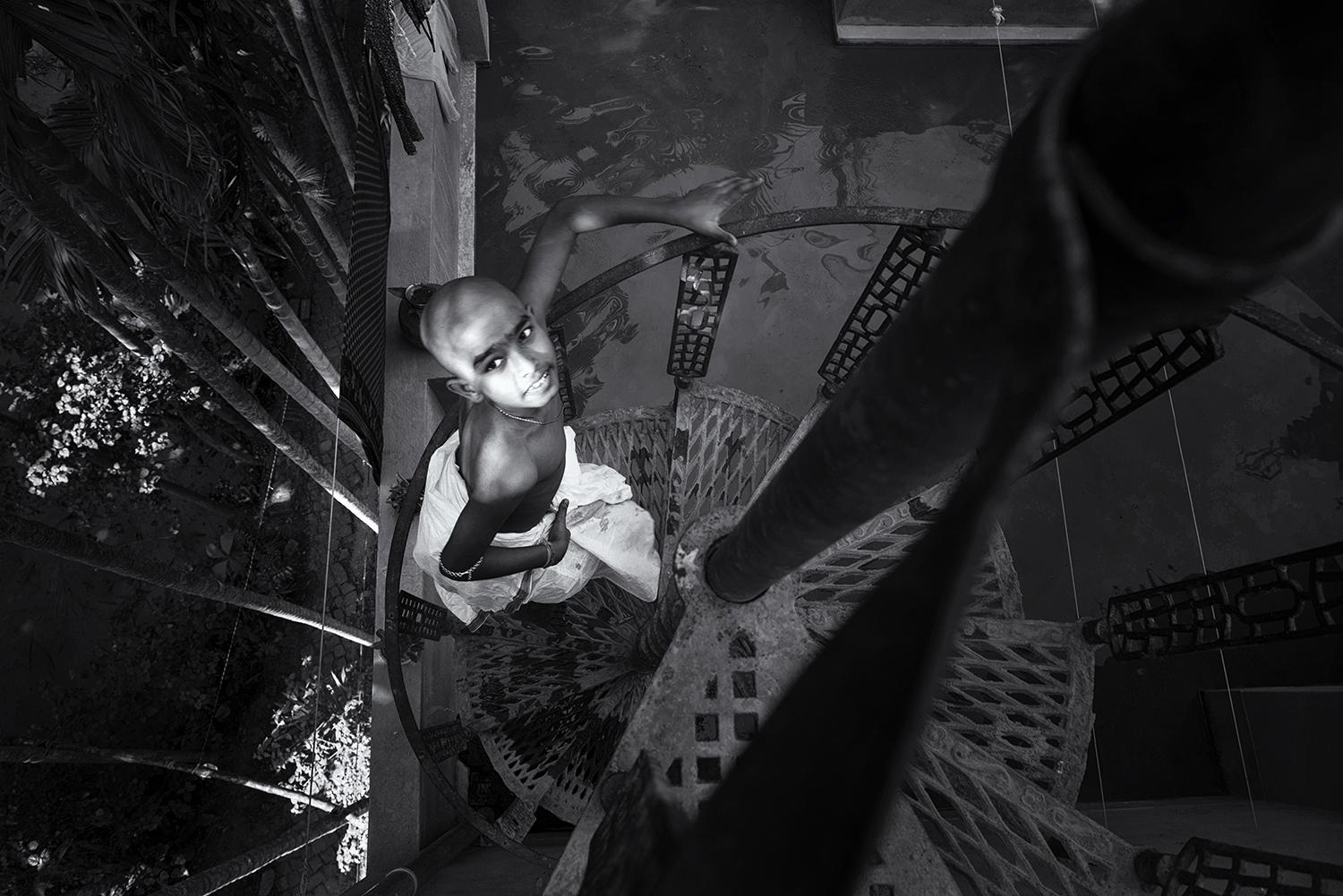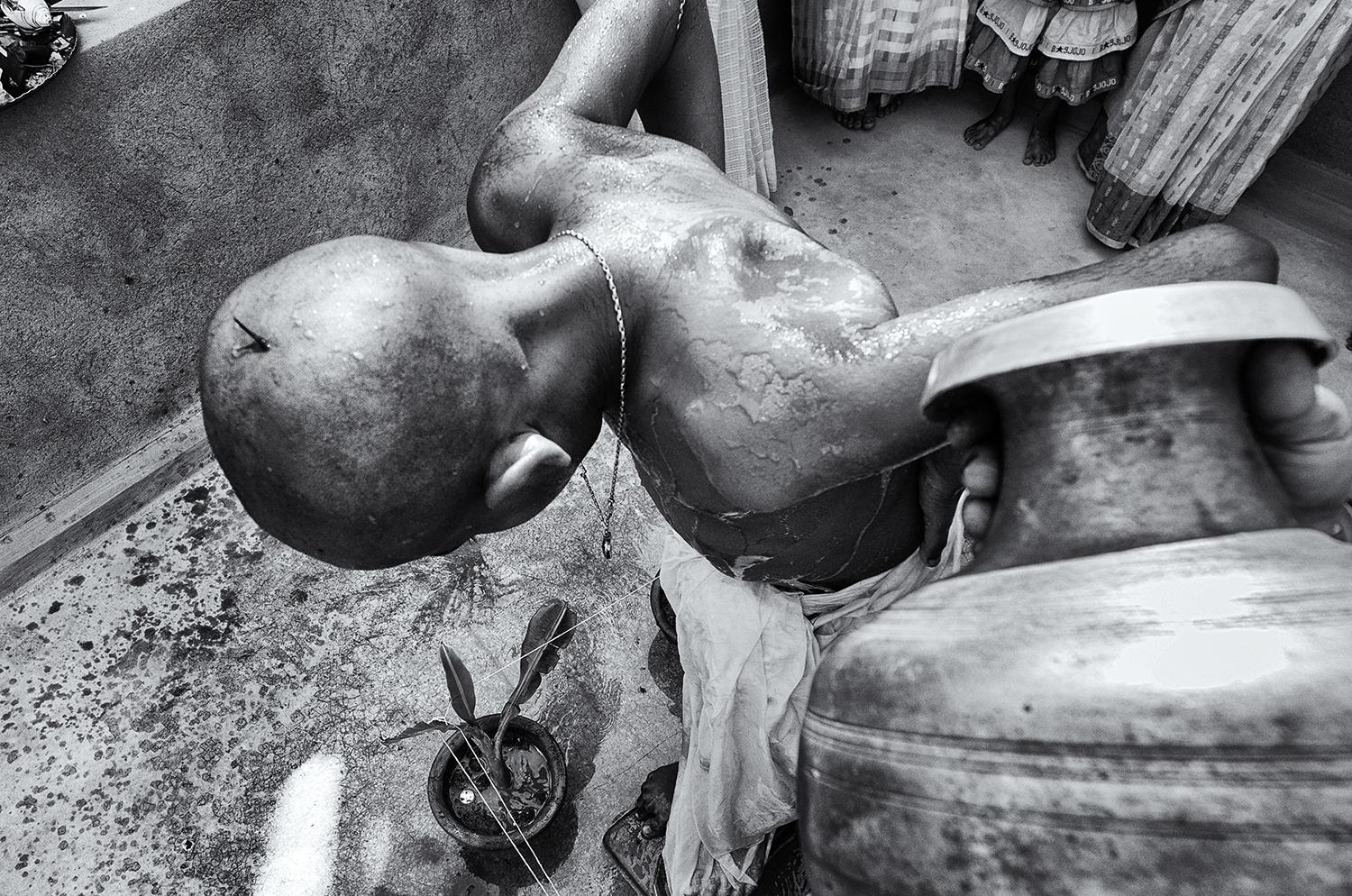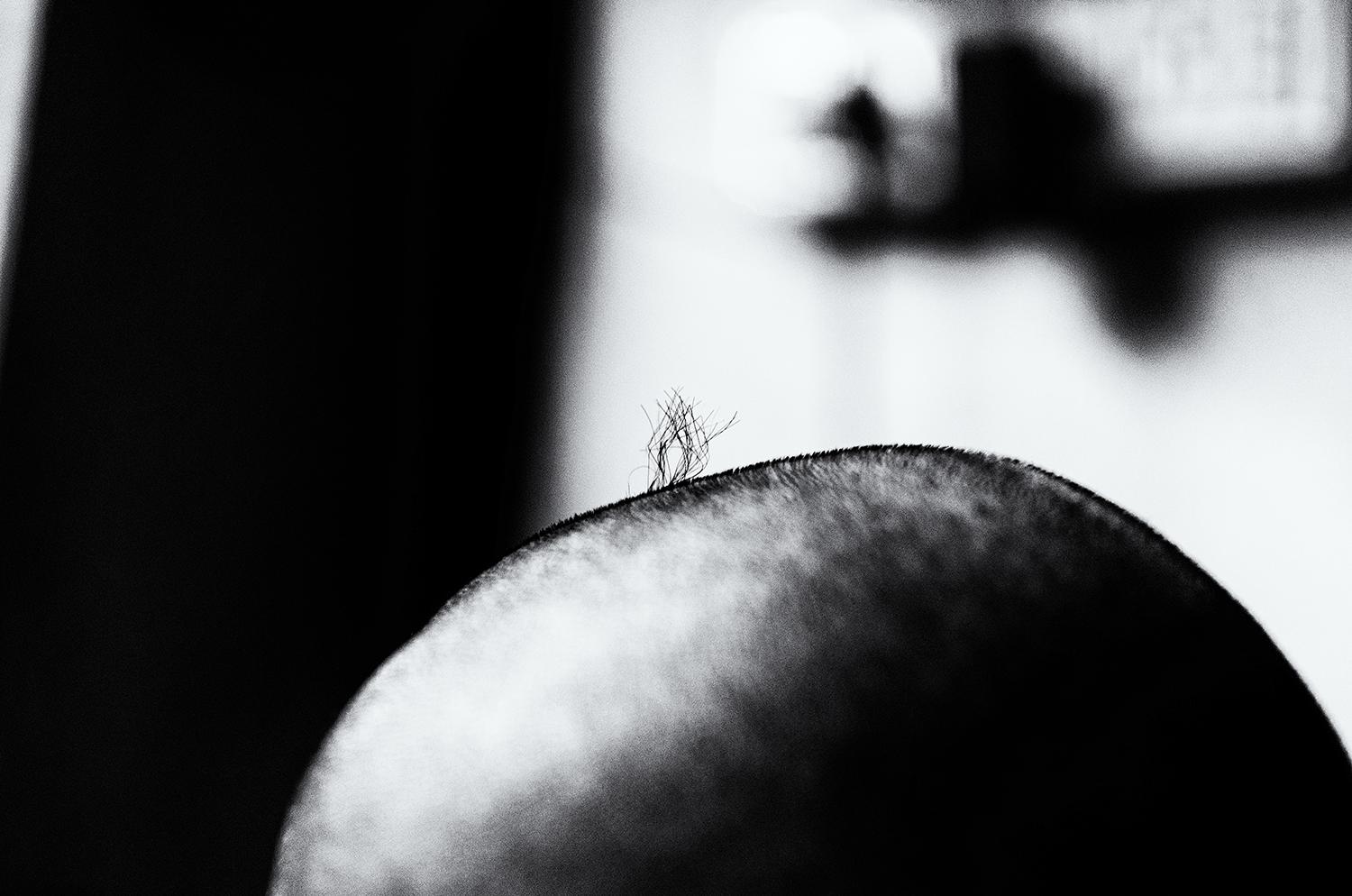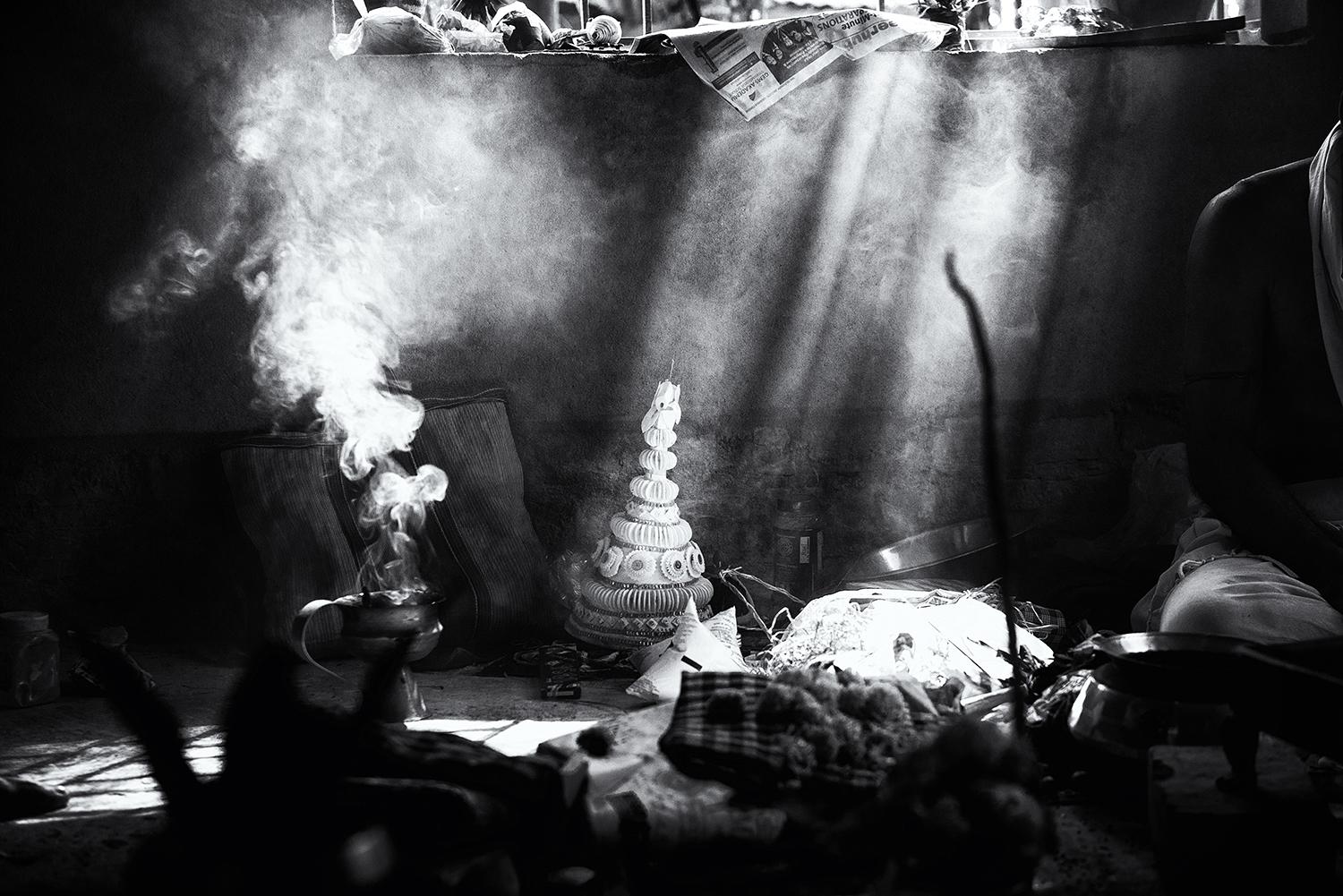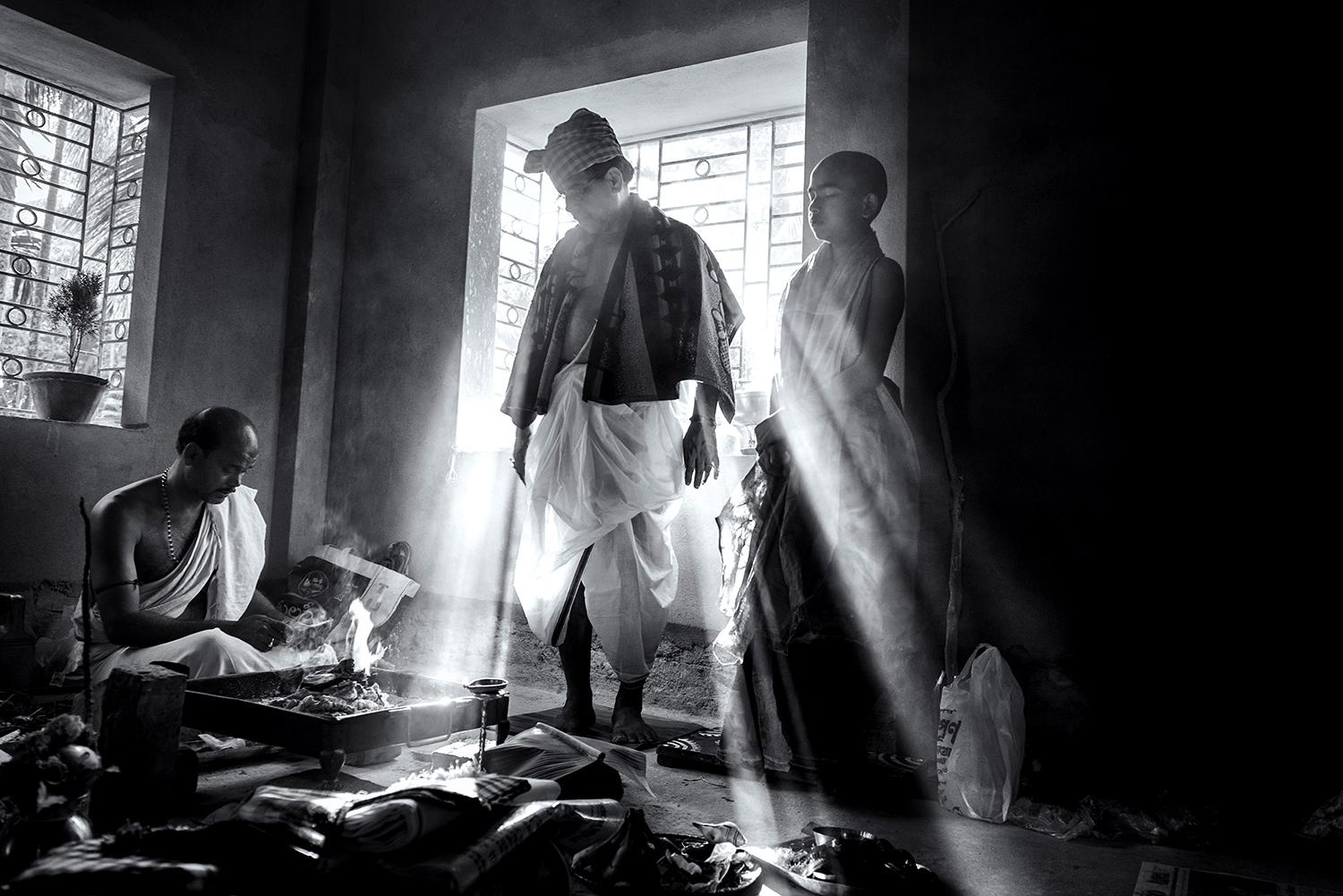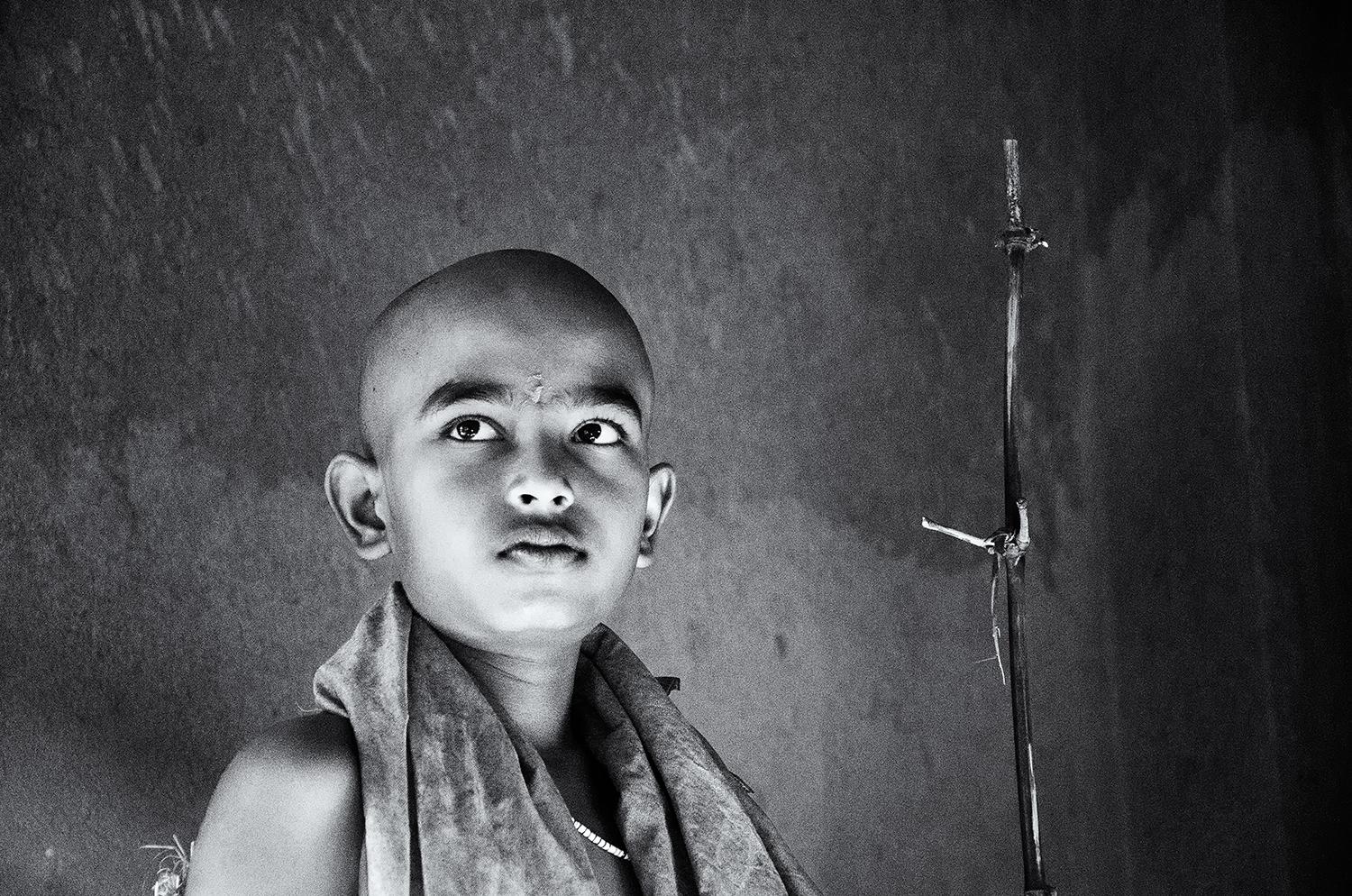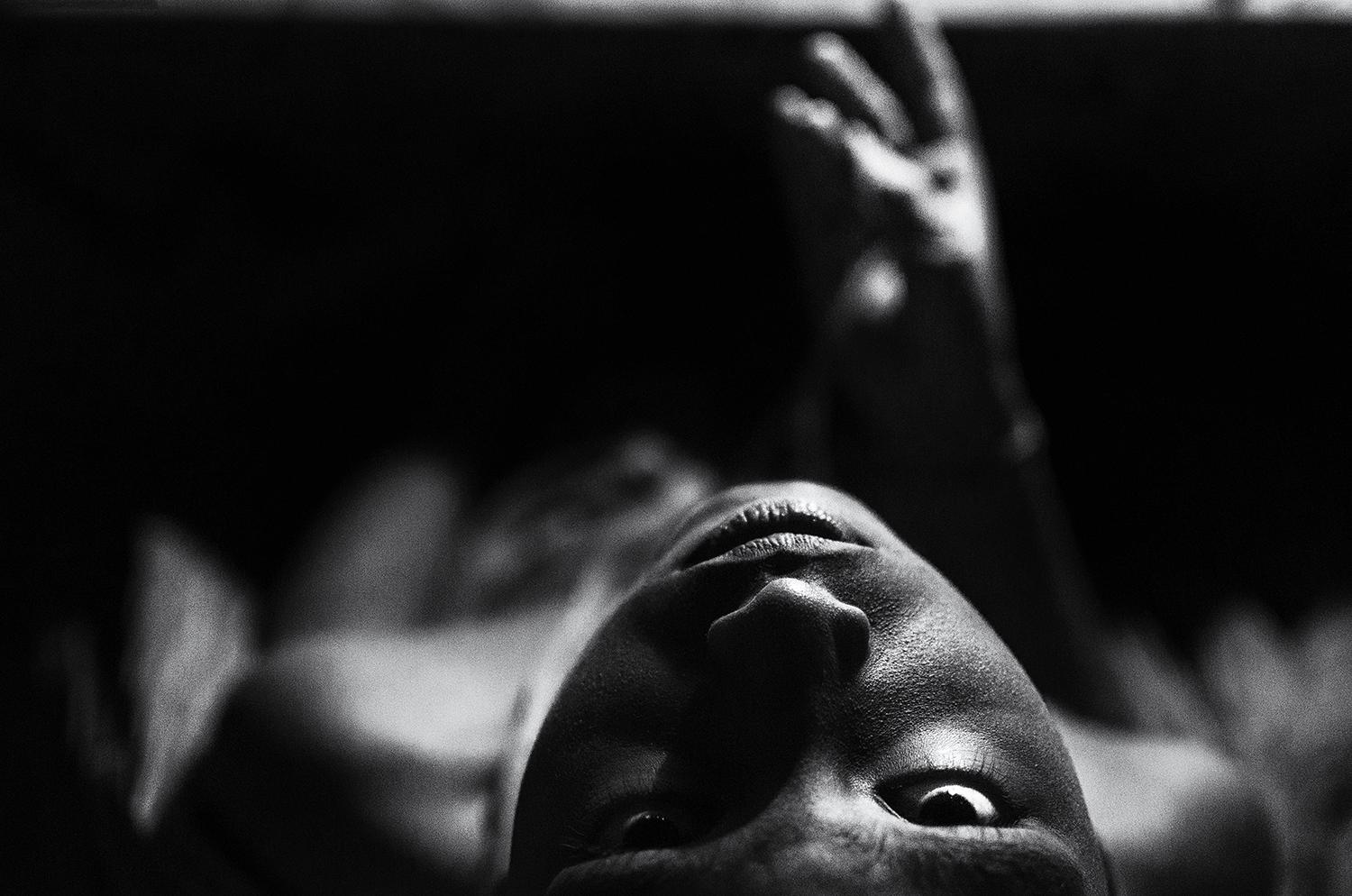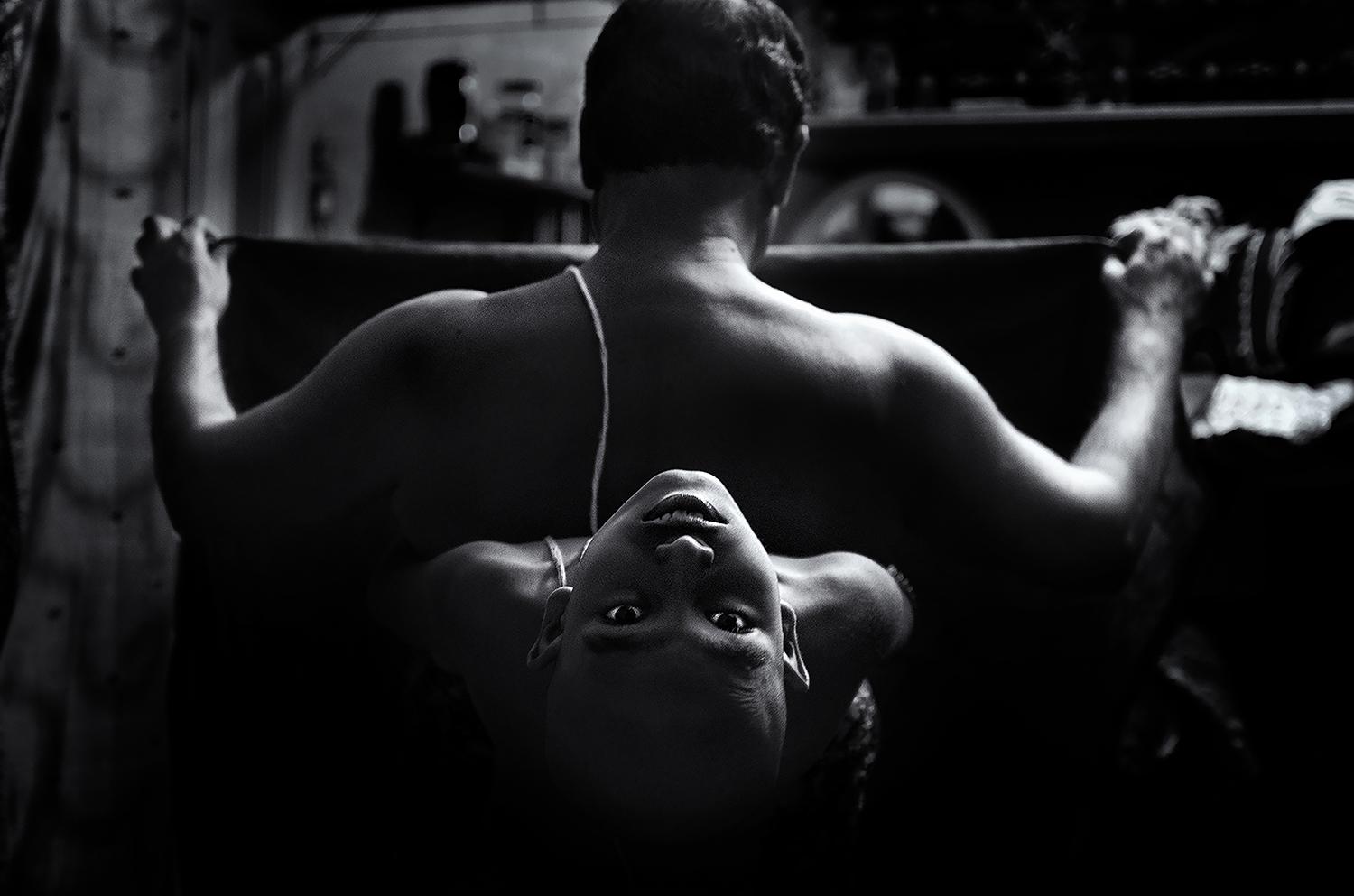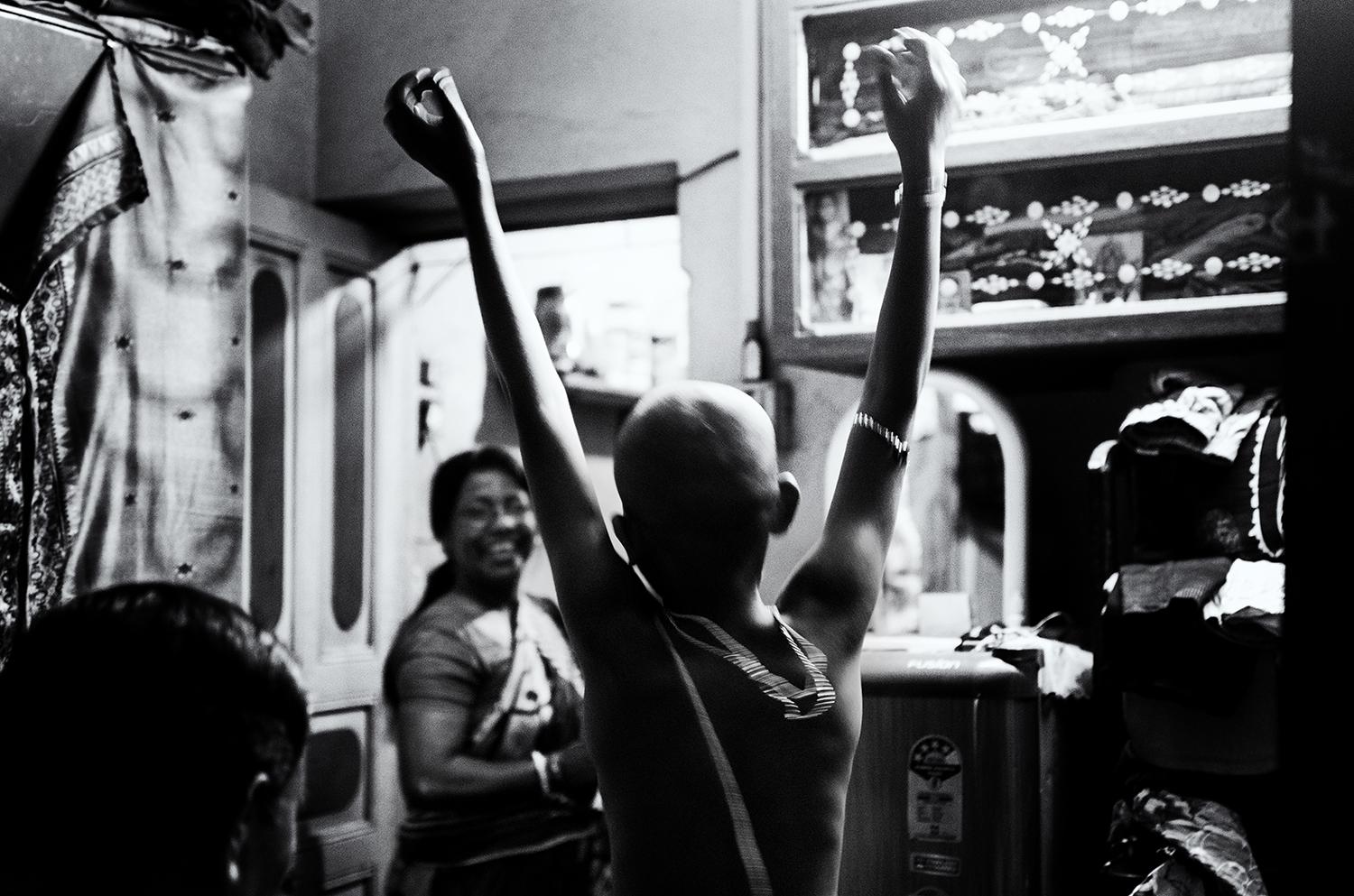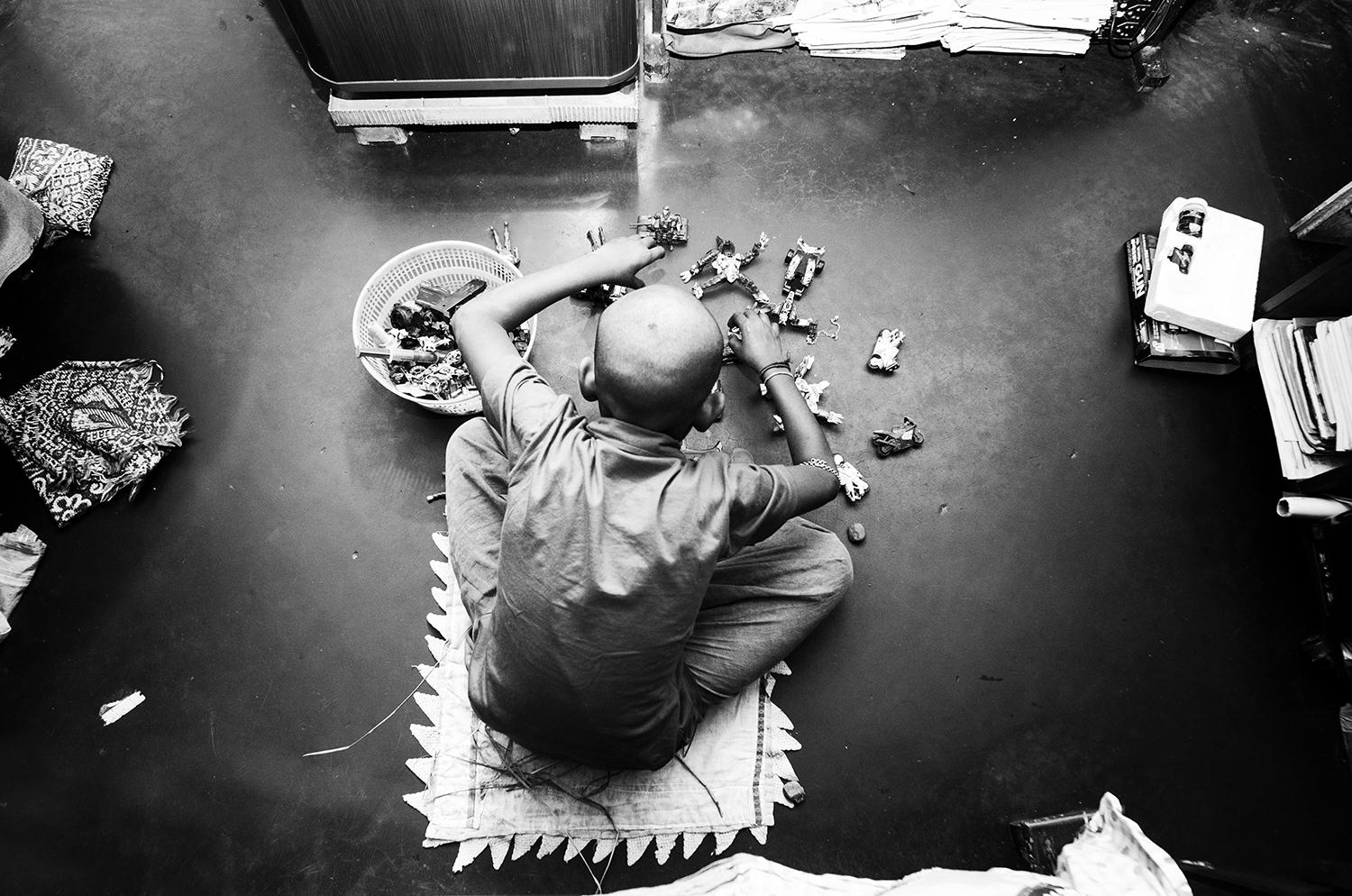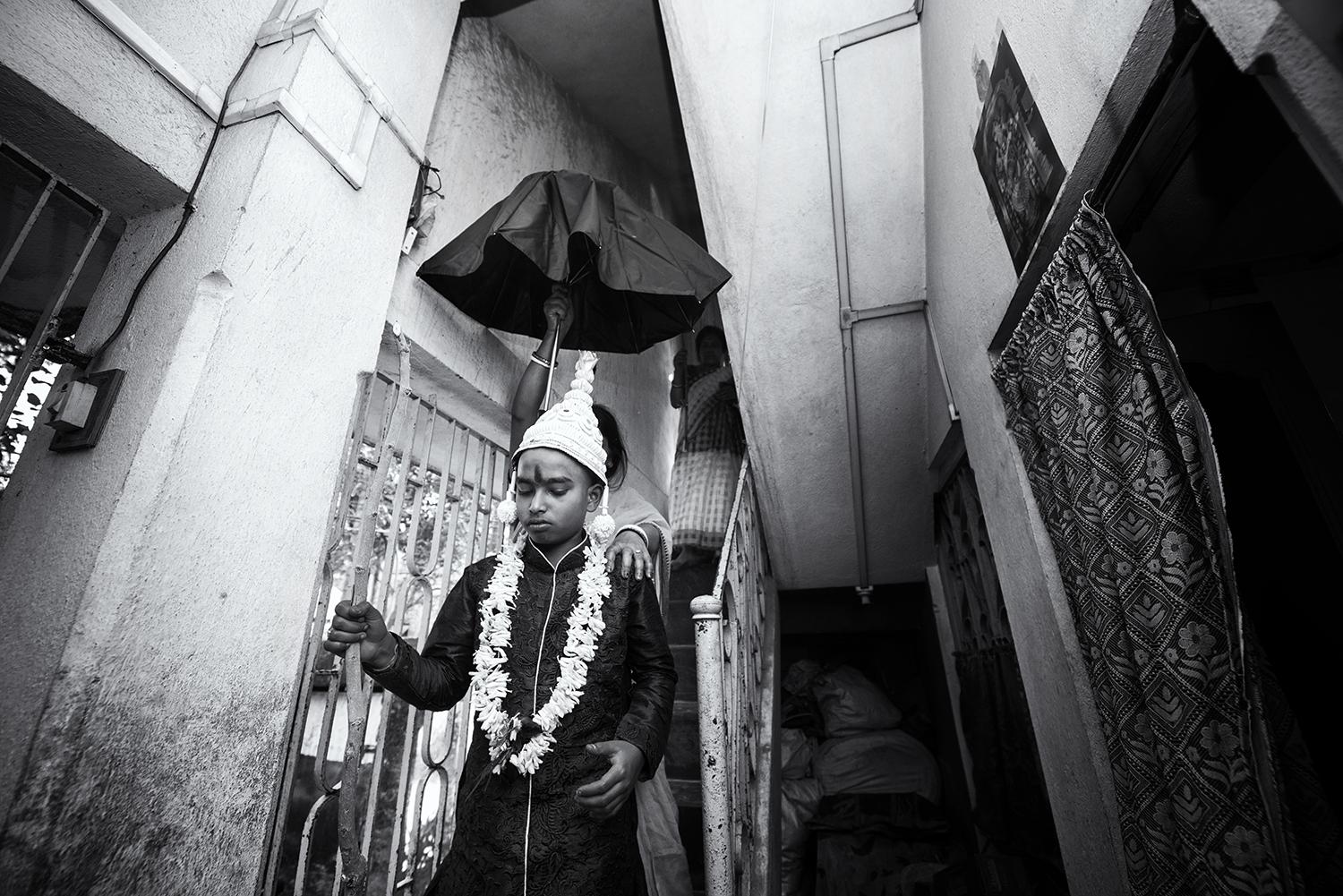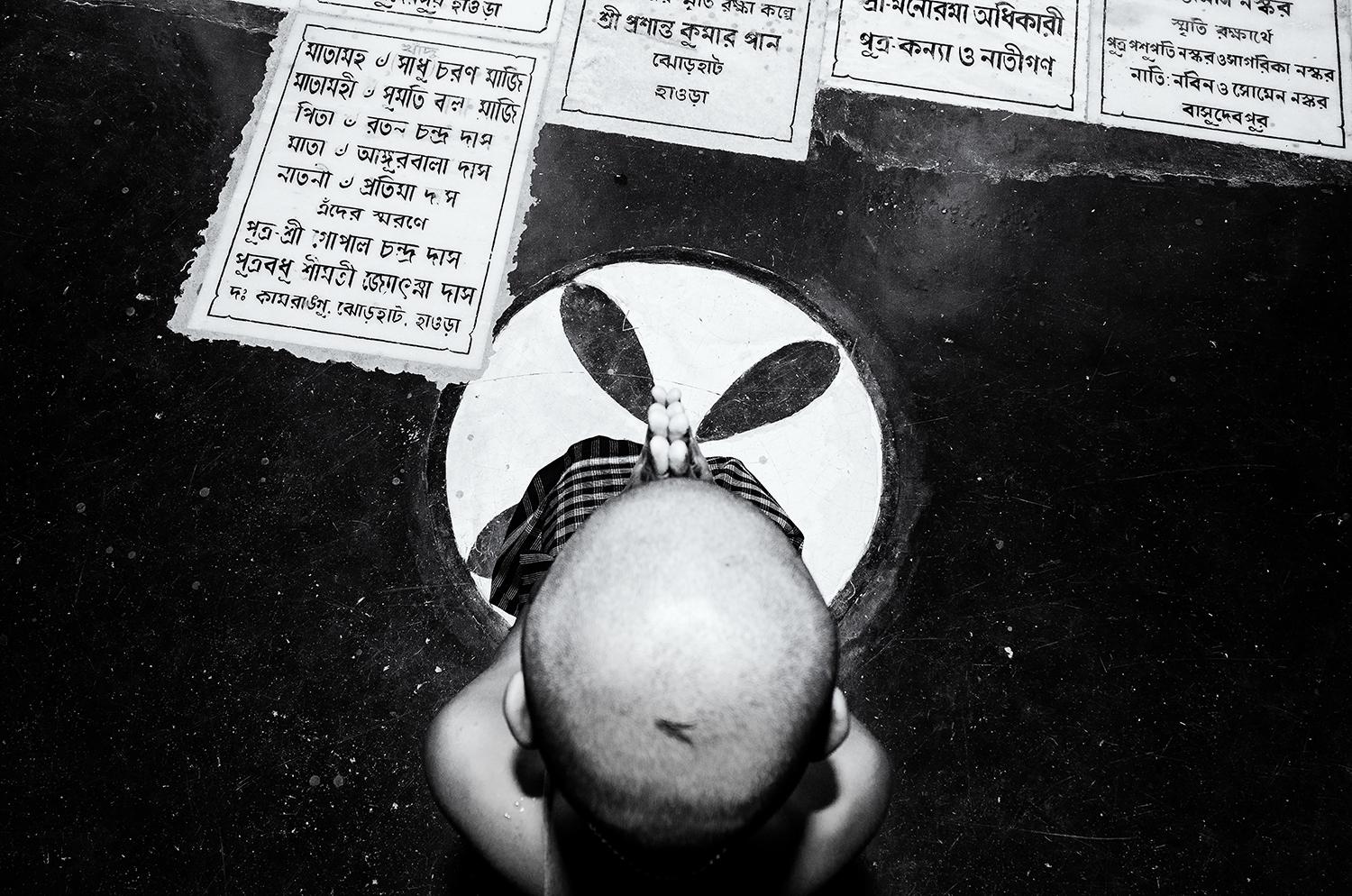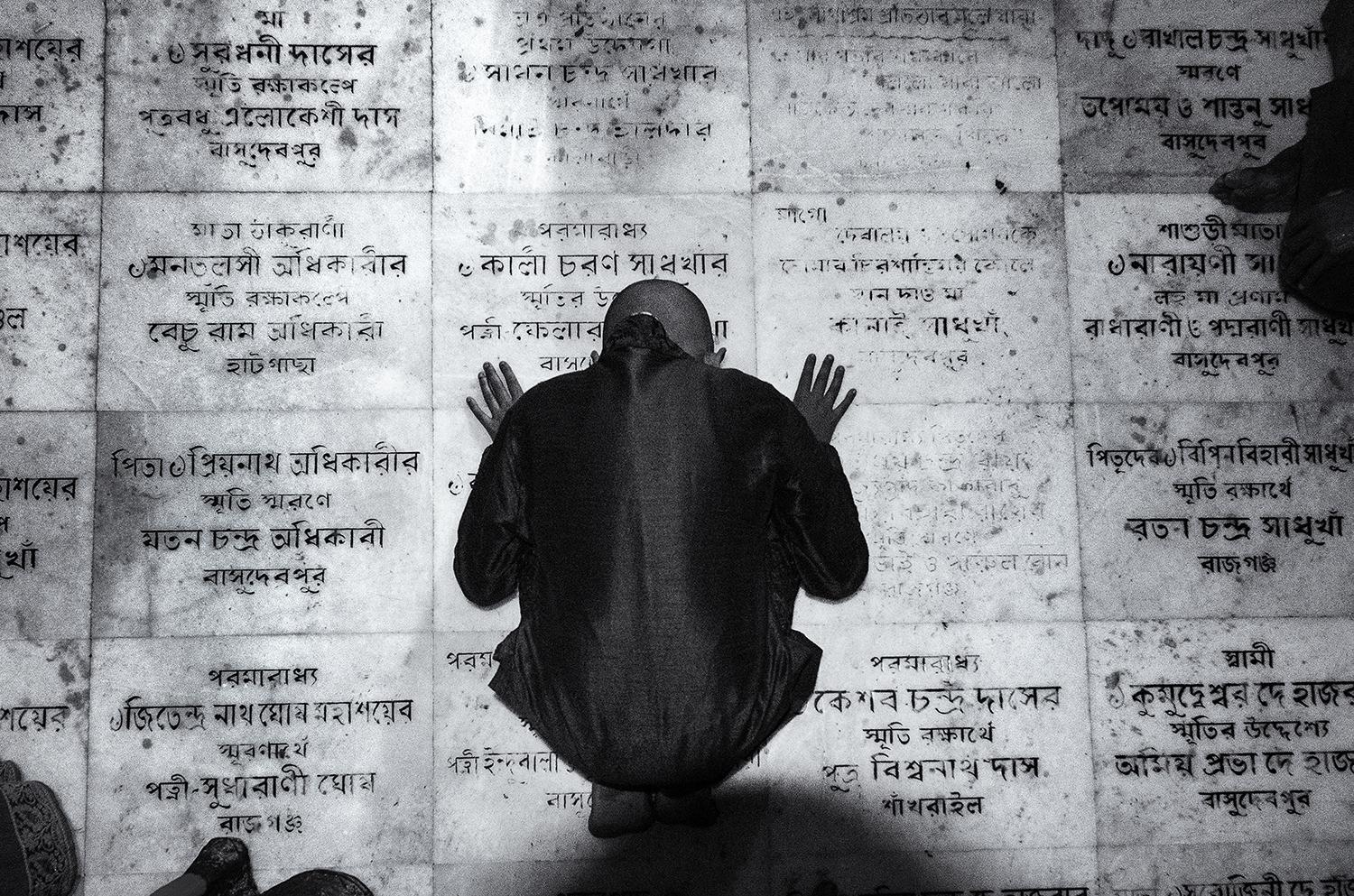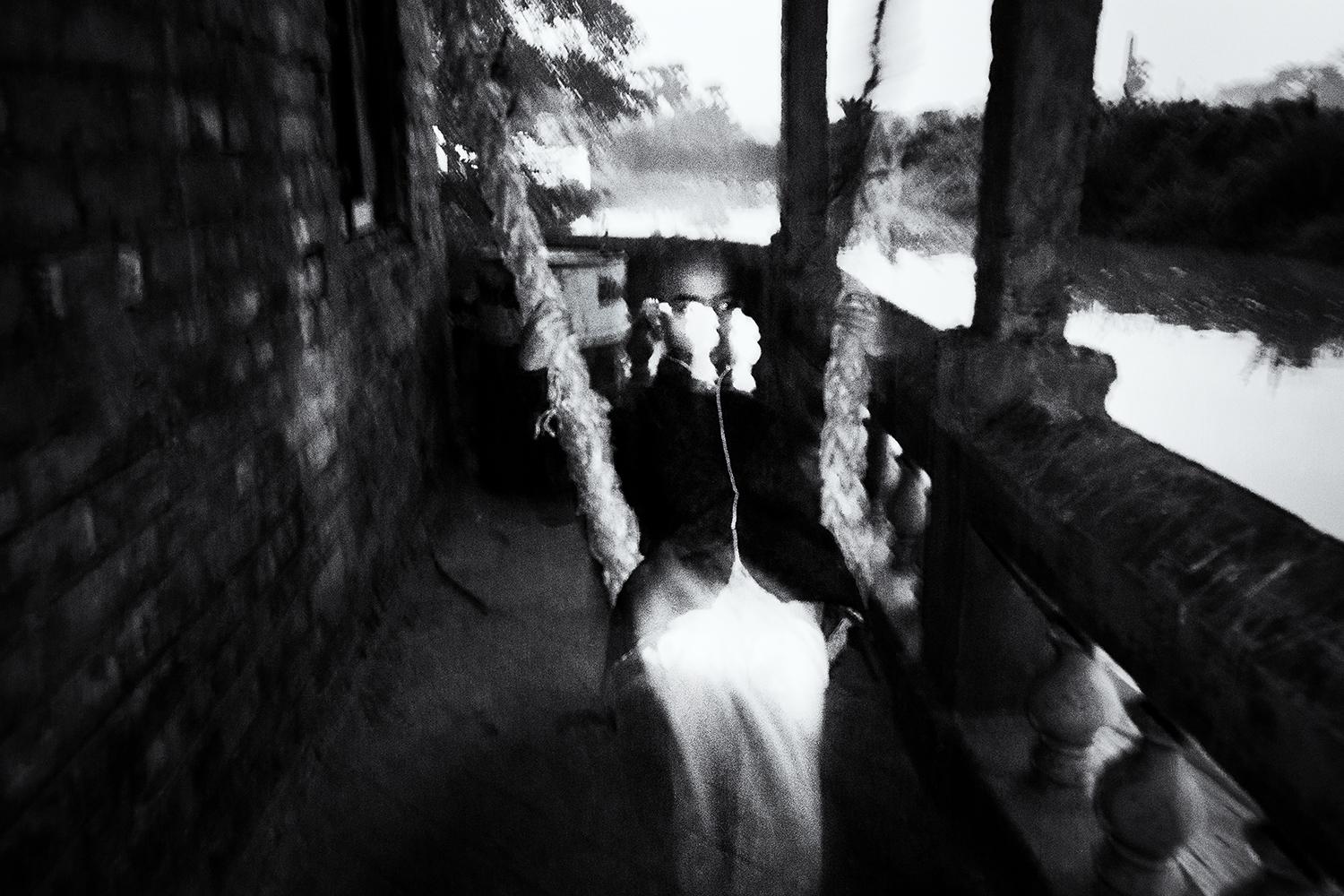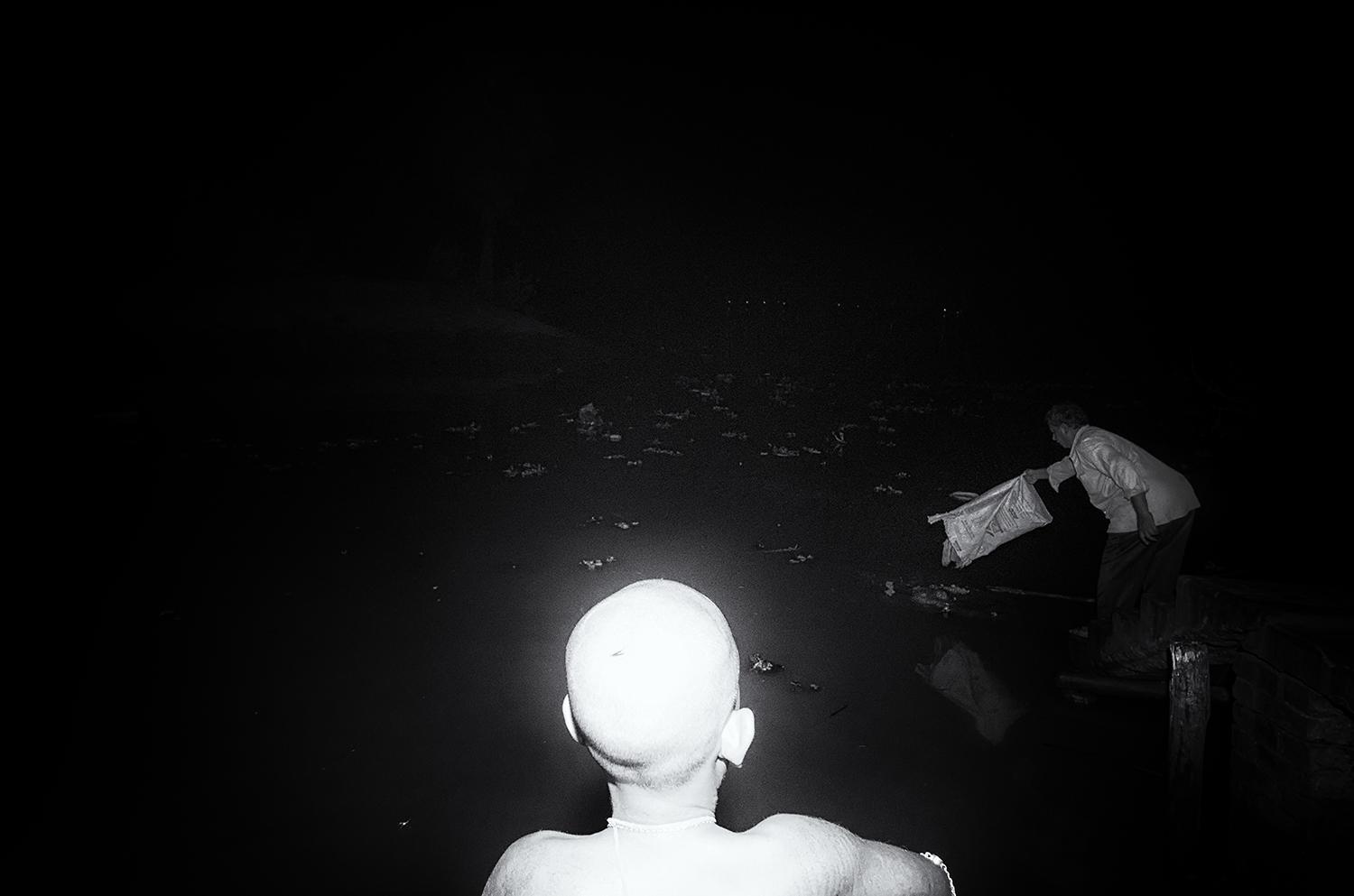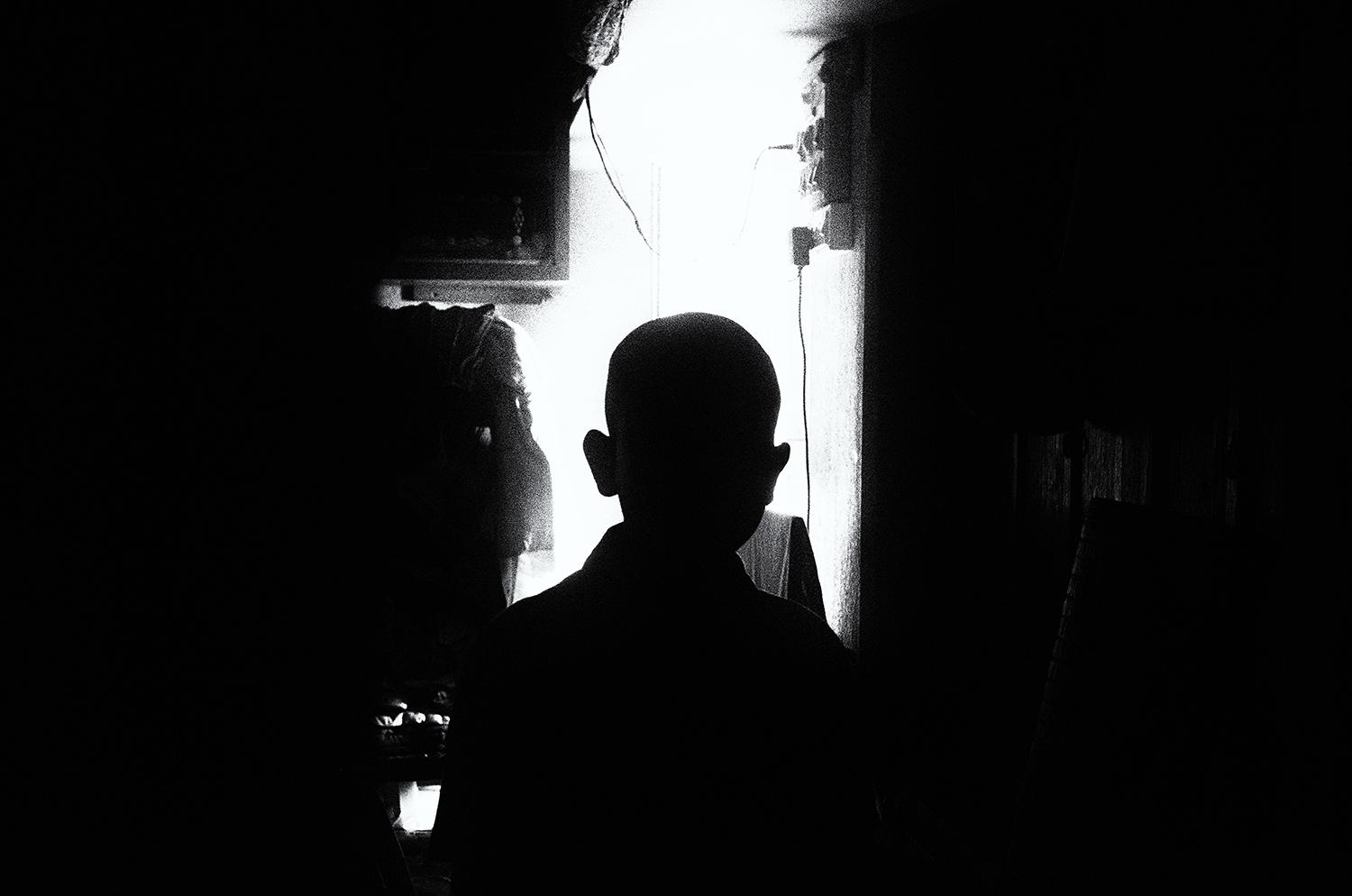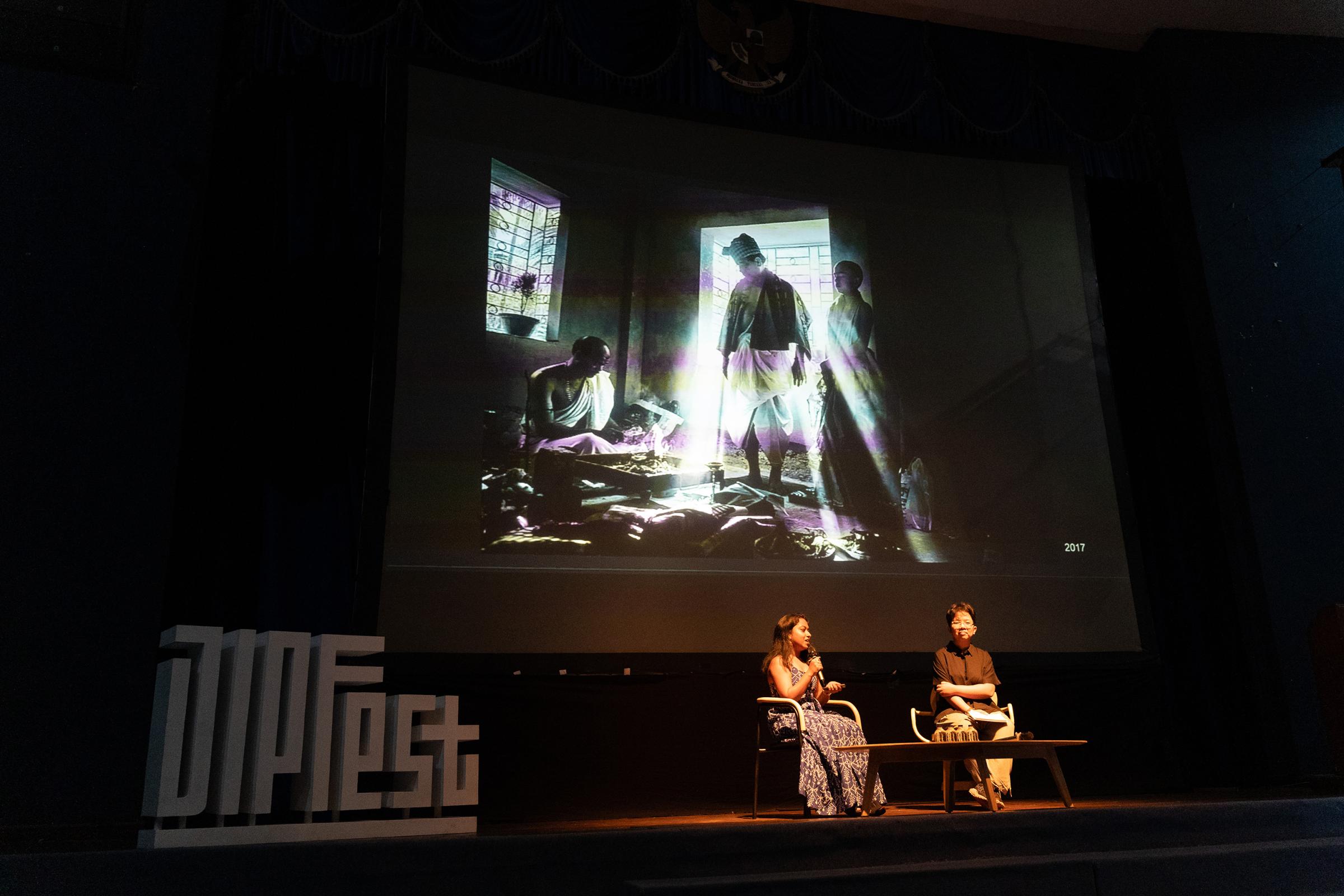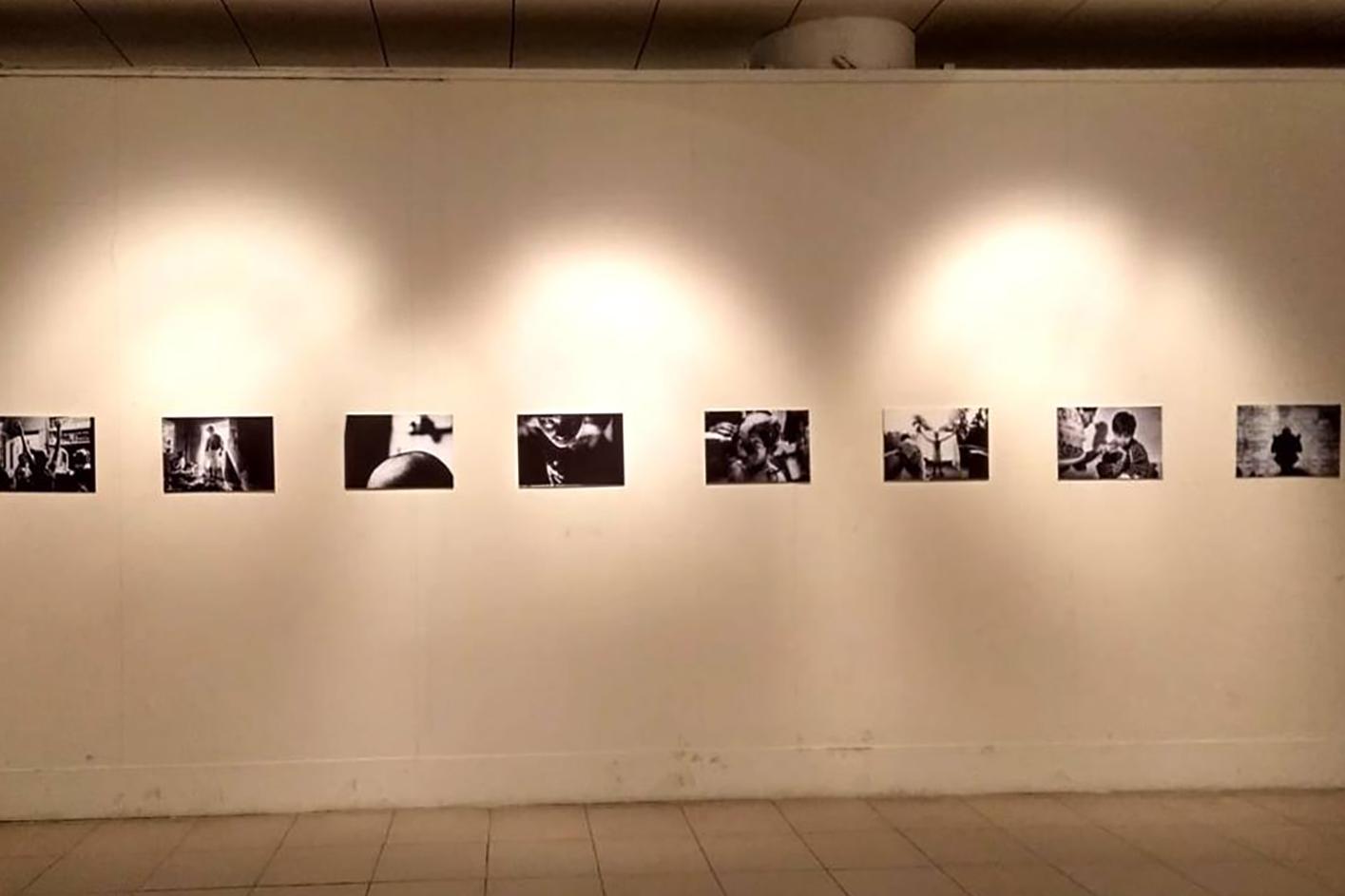Xposure International Photography Festival, Sharjah, UAE (2018)
Dhaka International Exhibition (2019)
7th annual New York Portfolio Review (2019)
Upanayan is a standout amongst the most vital Smaskaras (rites of passage) in a man's life. "UPA" signifies "CLOSE" and "NAYANA" signifies "TO BRING". Tlhis is also called the "SACRED THREAD CEREMONY". It is one of the traditional saṃskāras (rites of passage) that marked the acceptance of a student by a guru (teacher). The sacred thread (yagyopavita or janeu). consisting of a loop made of three symbolically knotted and twisted strands of cotton cord, is received by the boy during the ceremony, generally between the ages of 5 and 24, and it is worn throughout the lifetime, normally over the left shoulder and diagonally across the chest to the right hip that he continues wearing across his chest thereafter. Upanayanam marks the beginning of Brahmacharya, means "About to lead by learning the sacrifice". To simplify, it is a ceremony in which a person is declared as about to ‘lead’ and to Lead, one must learn or train to do ‘sacrifices’ involving Niyamas (procedures) and Karmas (duties) of personal, family and society.As a part of the process of ceremony, haldi (Turmeric) is applied to the body which is considered auspicious and also signifies protection. Before the holy bath, the ritual Mundan, commonly known as head shave takes place. Hair is seen as a matter of pride and by offering it to God, it is believed that we get rid of our pride and arrogance. Homn (lighting Sacred Fire with wood and oil) is being performed to invoke the gods for their blessings and to also obtain favors from them. Gayatri Mantra is taught by Guru (The Master) under wraps to ensure the boy listen attentively. According to the Vedas if one regularly performs "jap"or chants this mantra one gains an inner strength. A Dand (holy stick) is being given as inseparable companion. It is given to take care of the household and also comes in handy in times of dangers as a weapon for self-protection. The idea of counseling lessons of humility, service, love, and respect for the guru and limit from common joys, important for an individual in his journey through life is the basic truths behind the performance of Upanayan.
The upanayana was restricted in many medieval Indian texts to the upper three of the four varnas (castes) of society — brahmins, kshatriyas and vaishyas. However, Vedic period texts such as the Baudhāyana Grihyasutra encouraged all members of society to undergo the upanayana, even (manual workers) shudras. Women were encouraged to undergo upanayana in ancient India before they started Vedic studies or before their wedding.
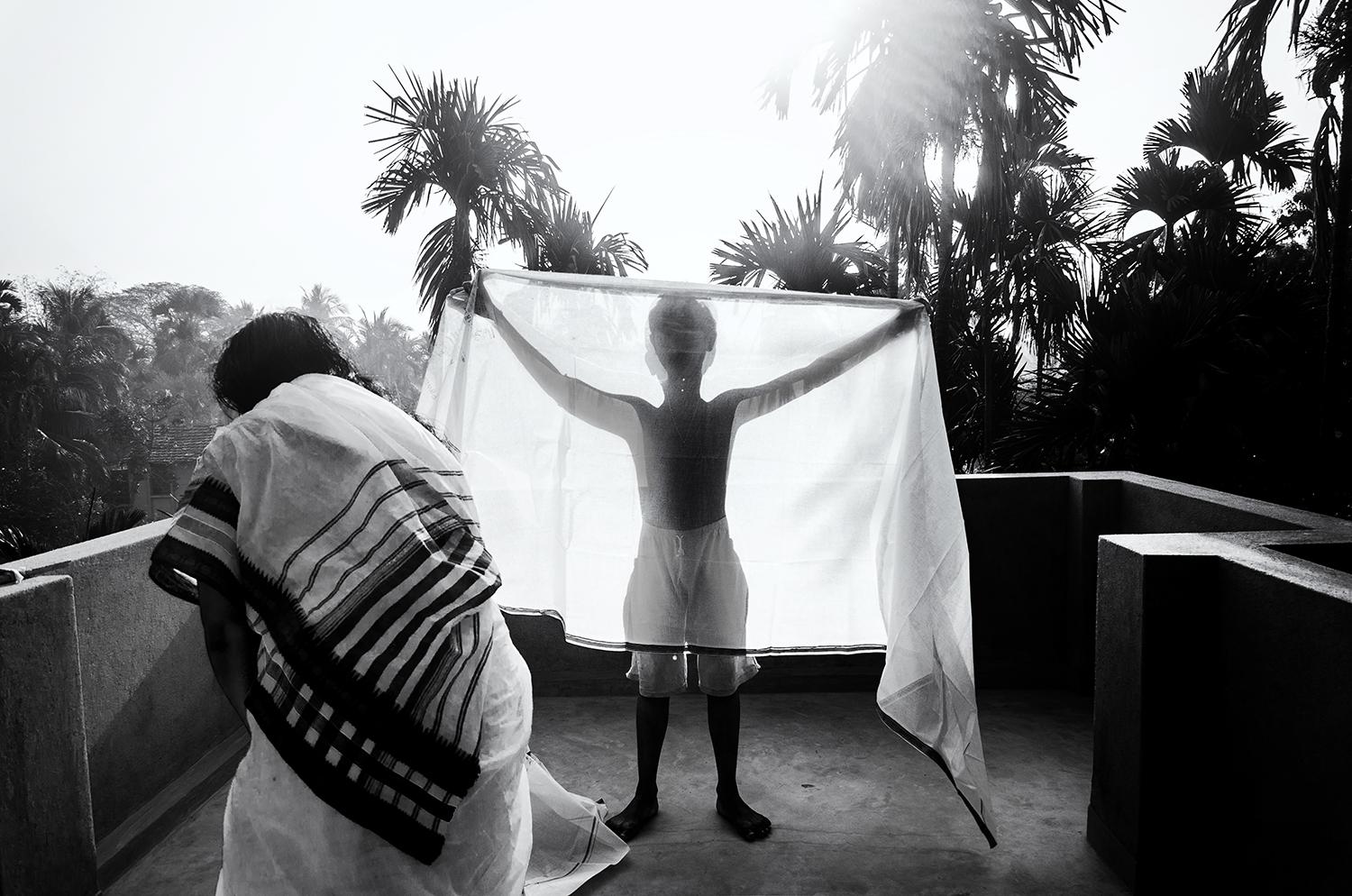
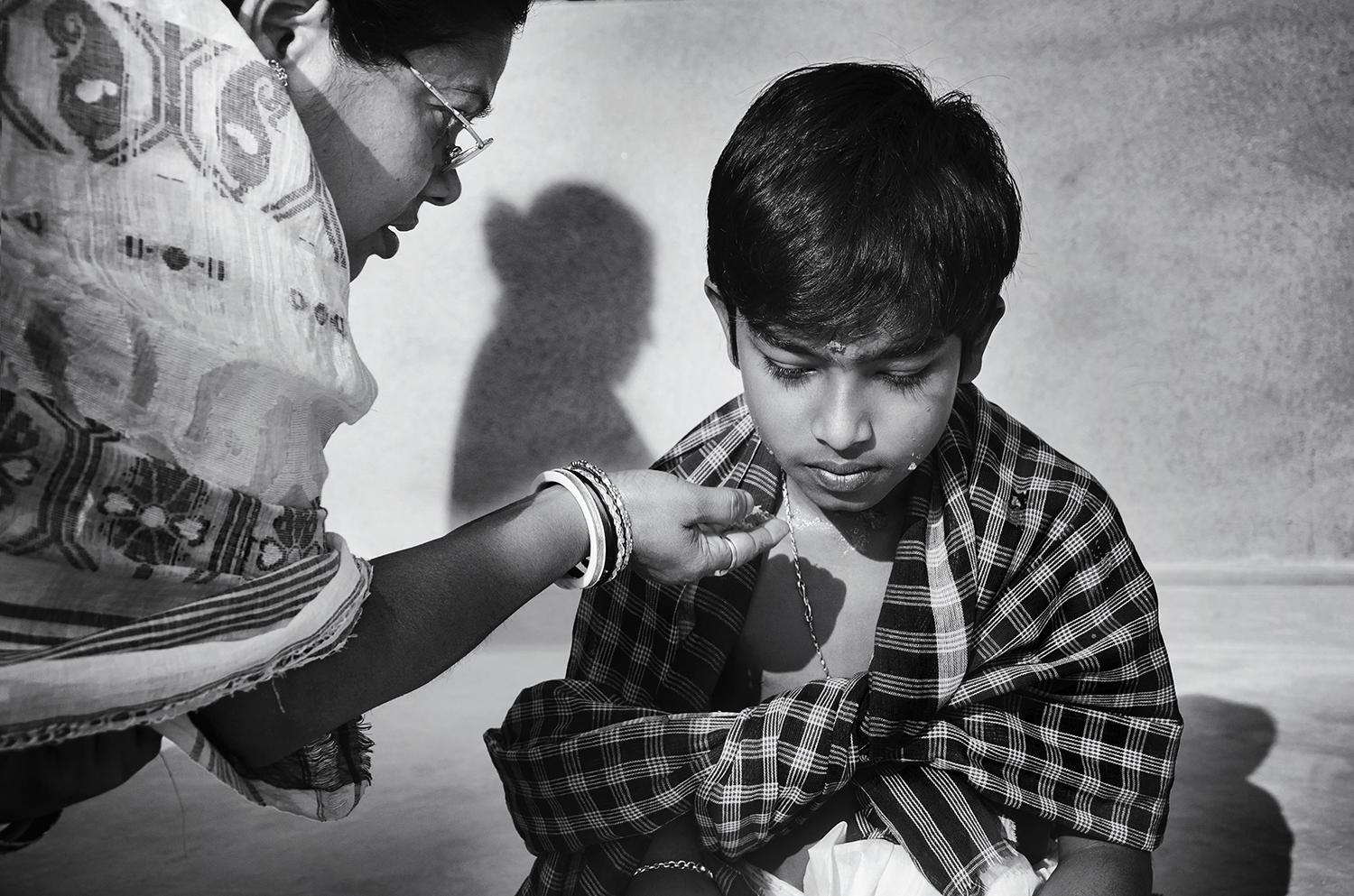
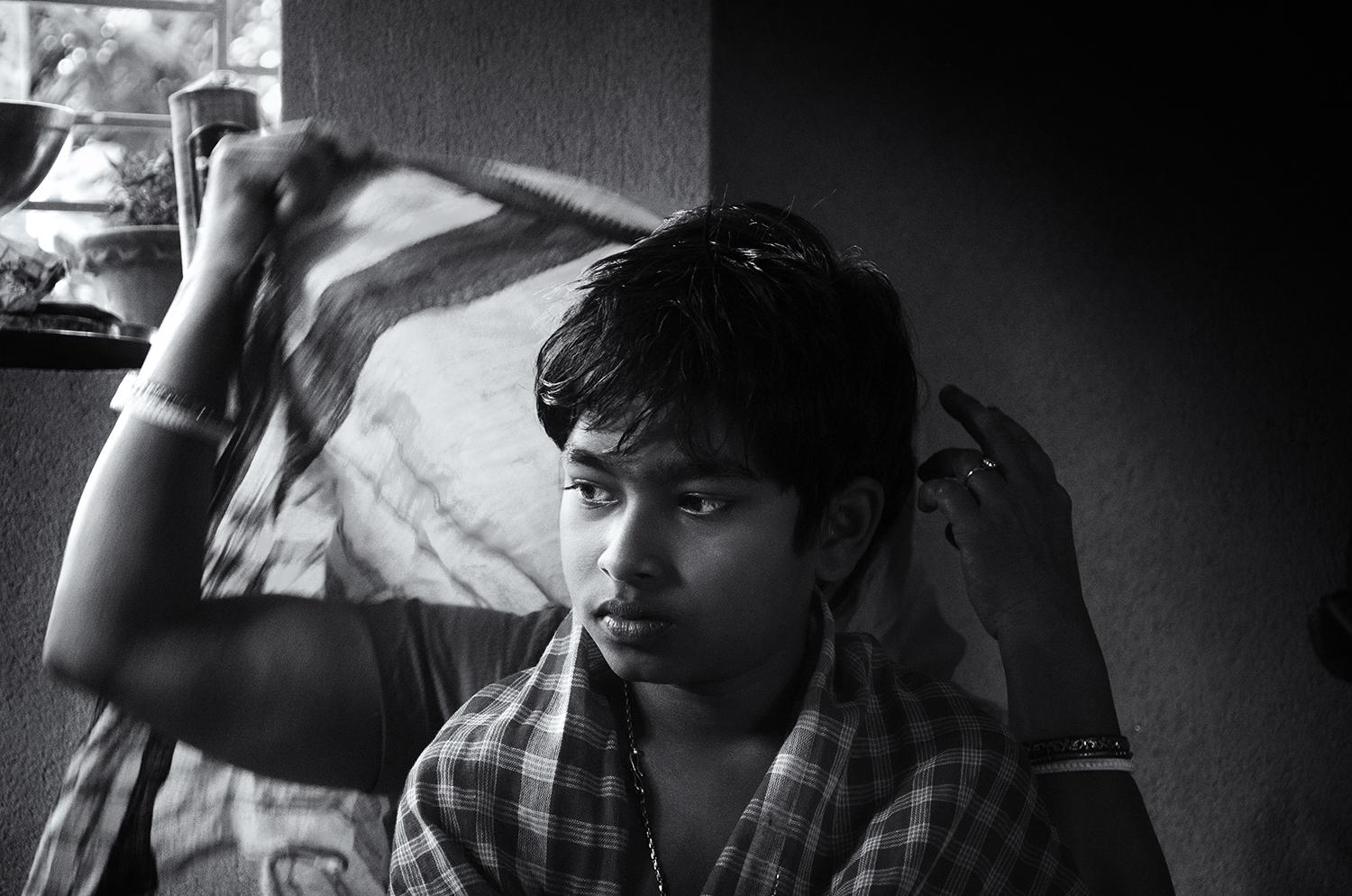
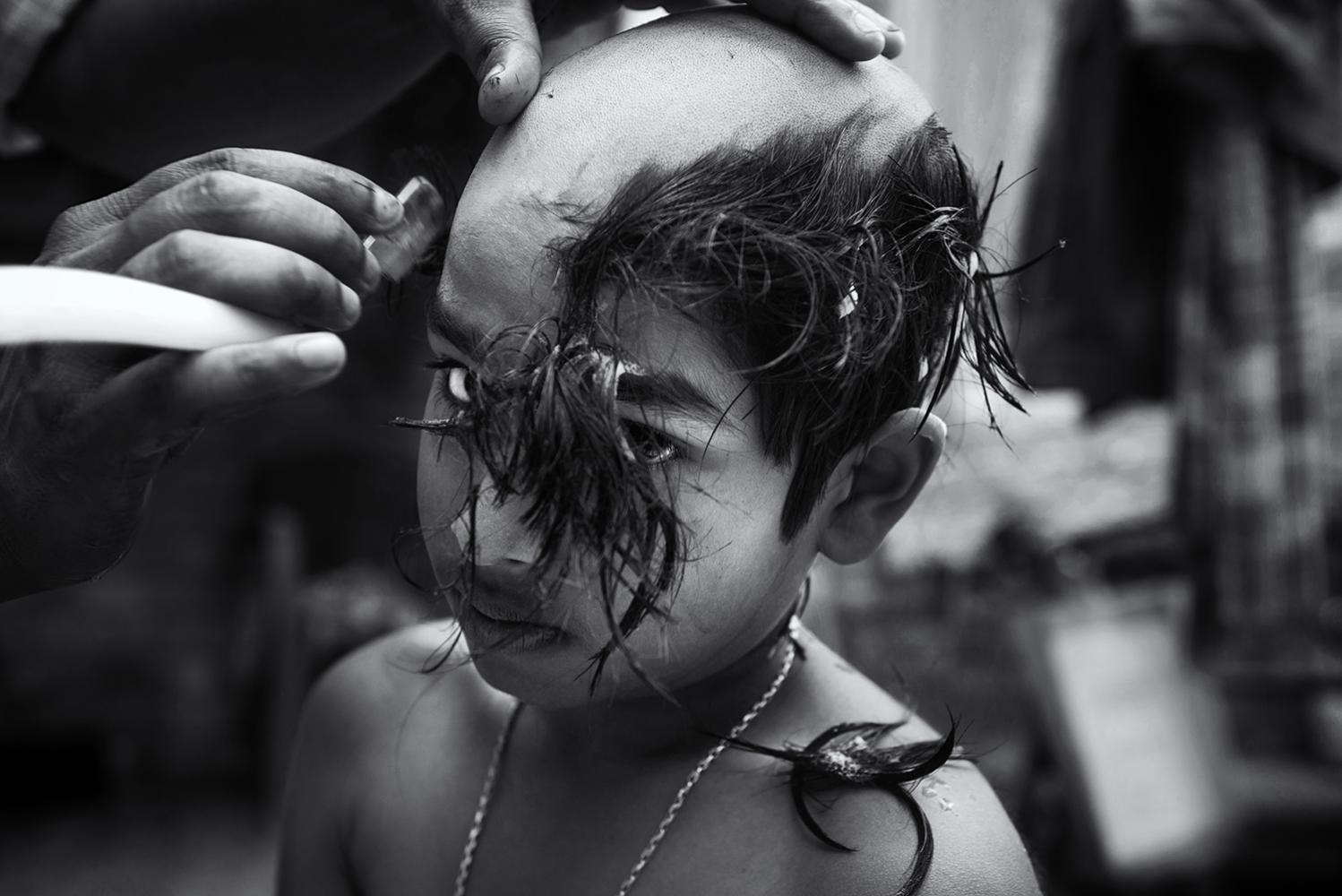
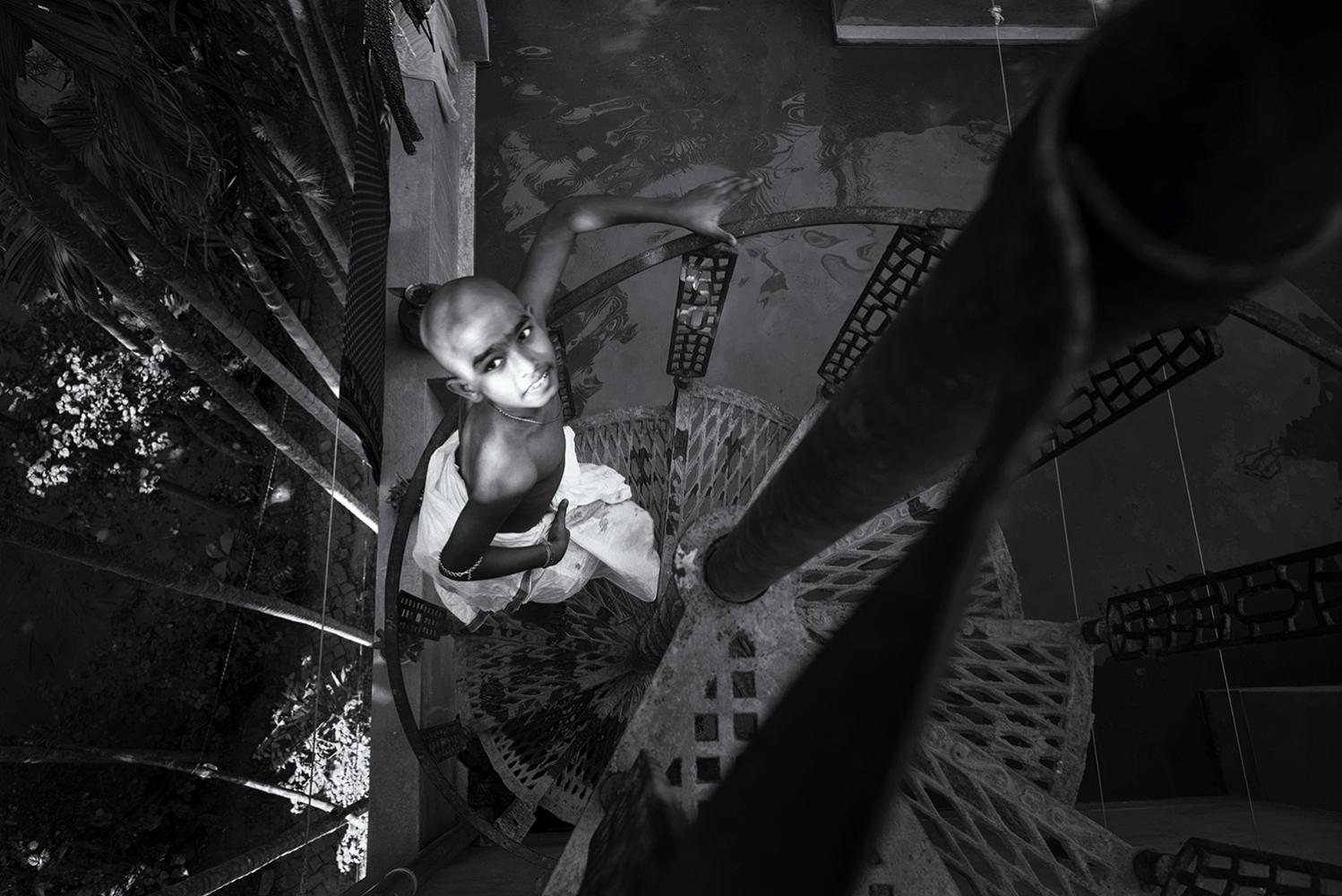
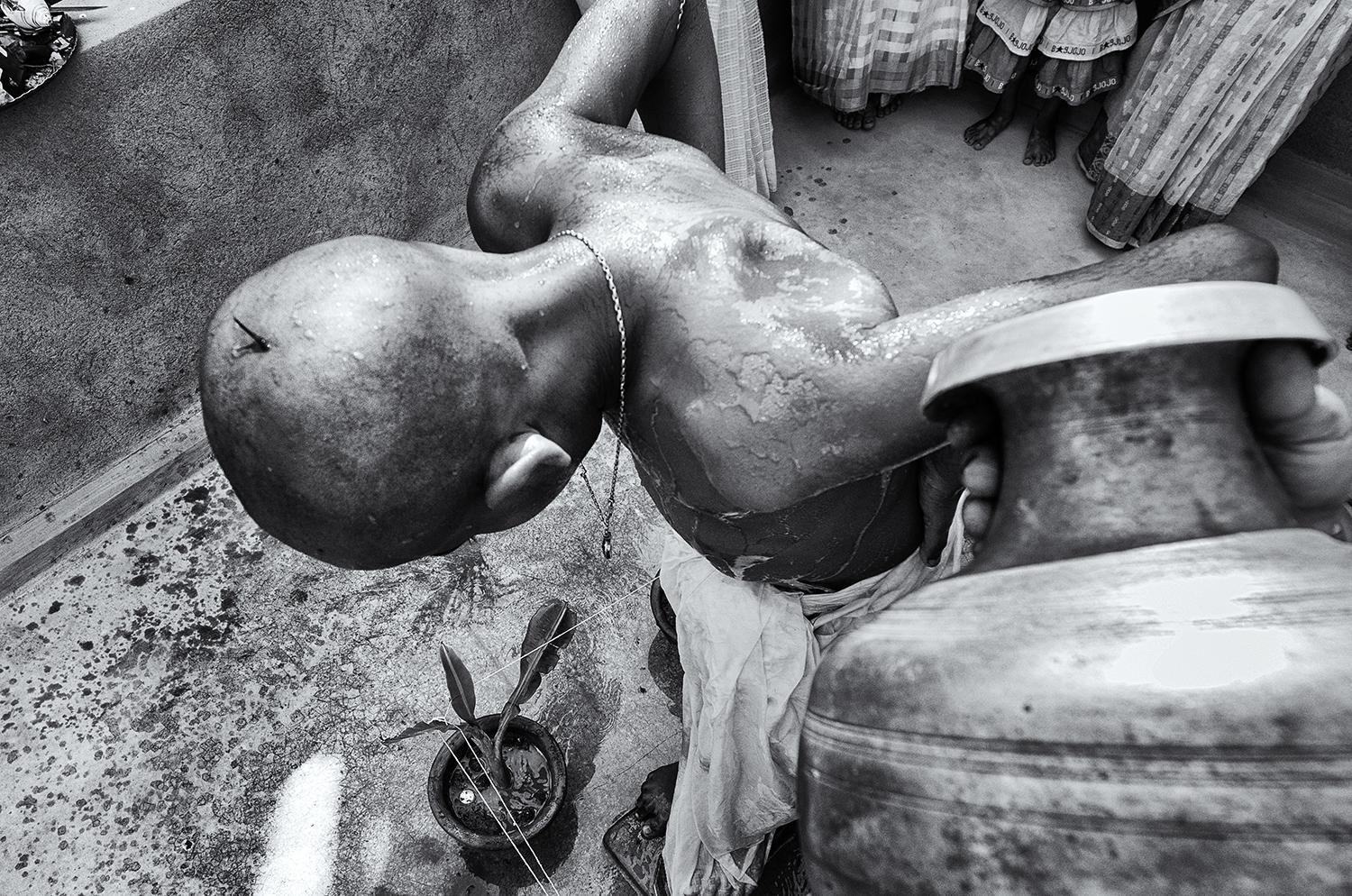
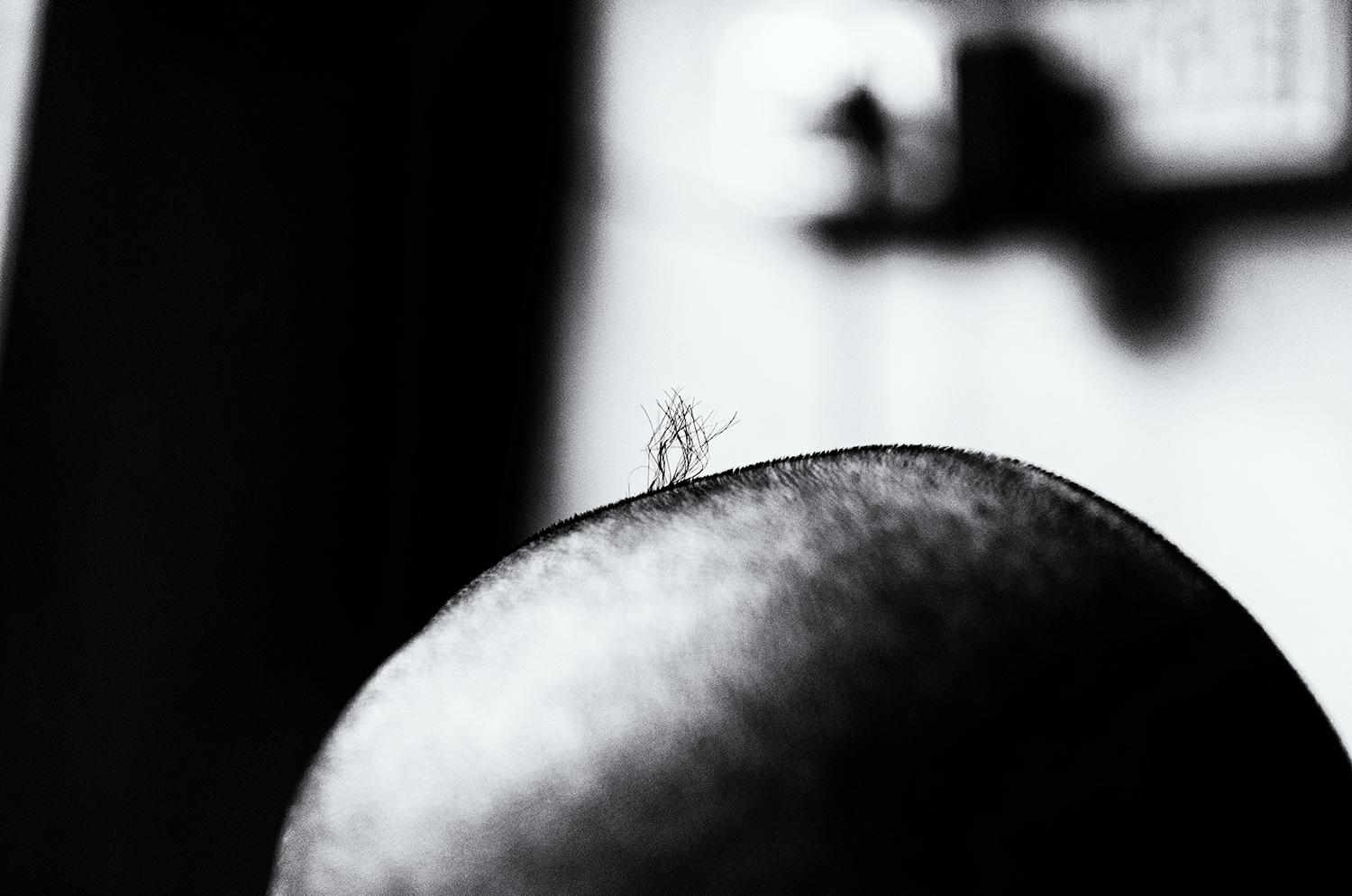
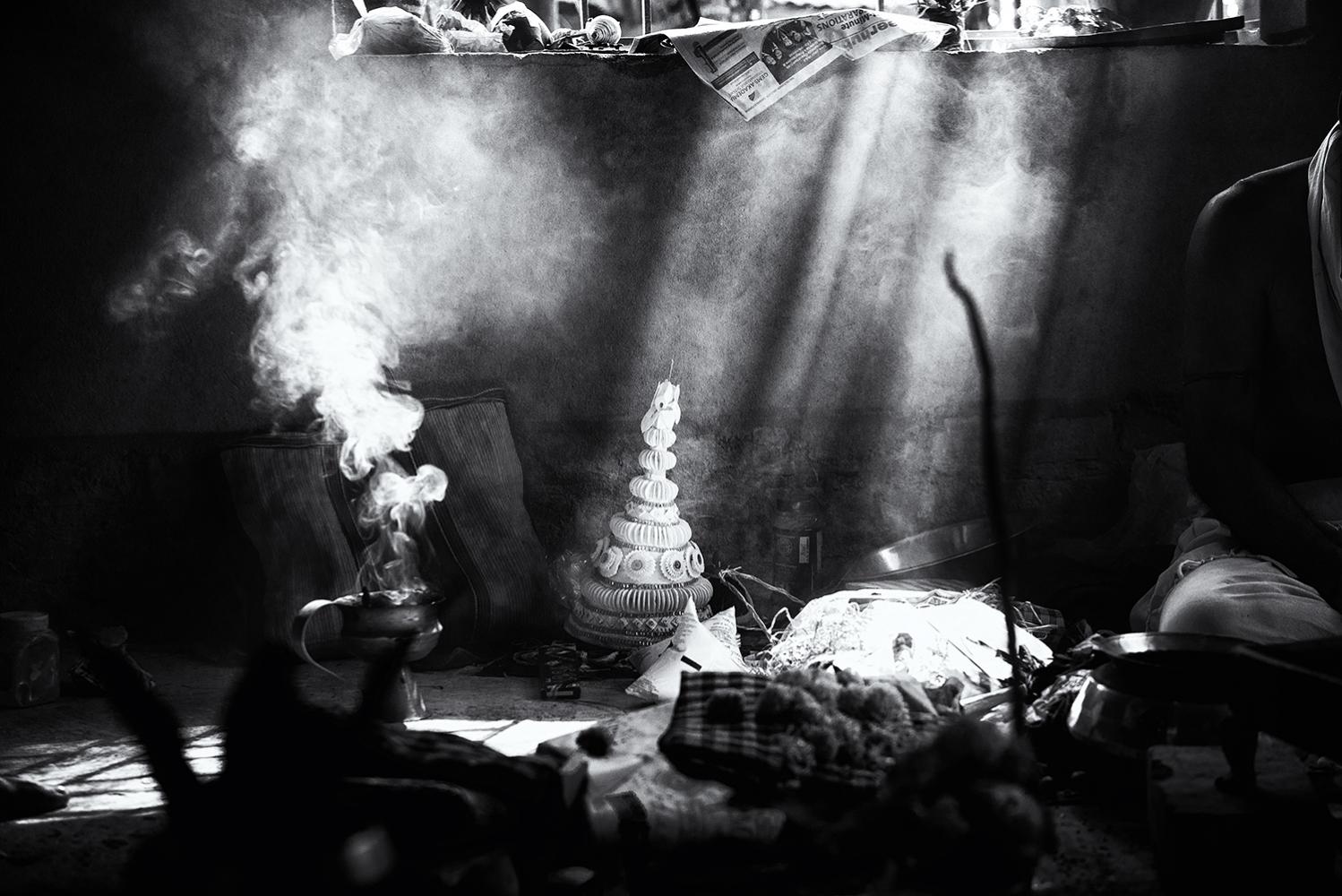
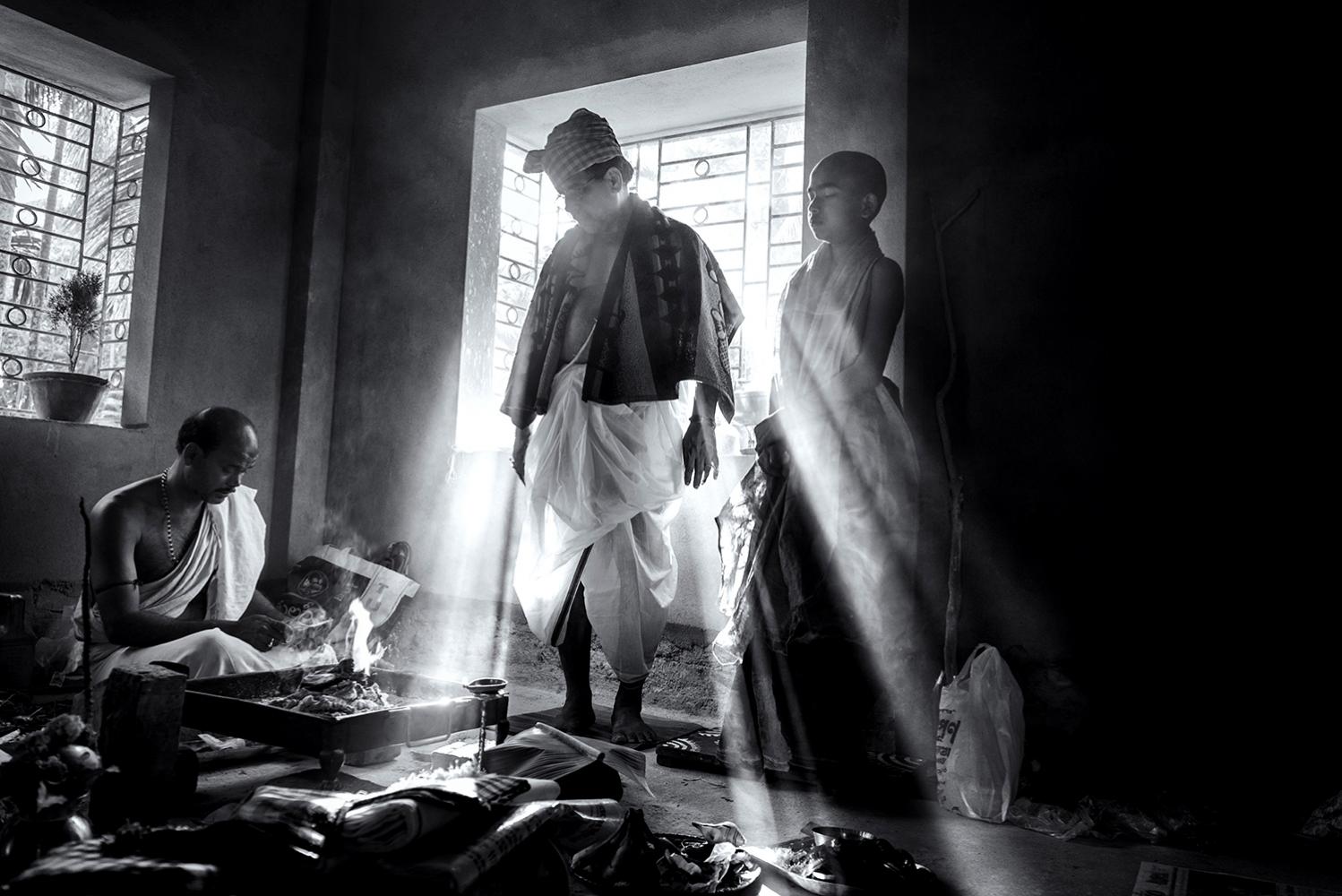
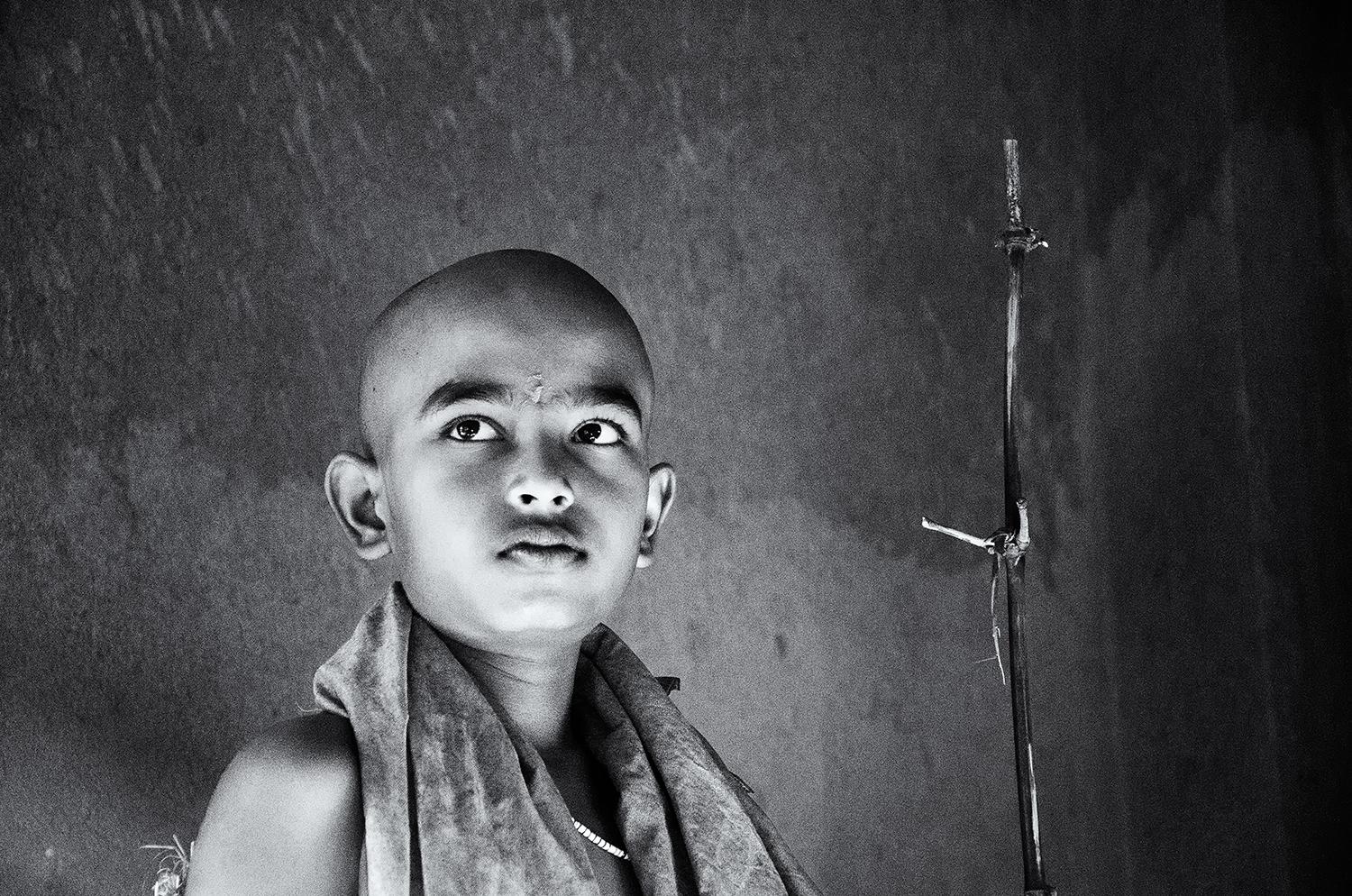
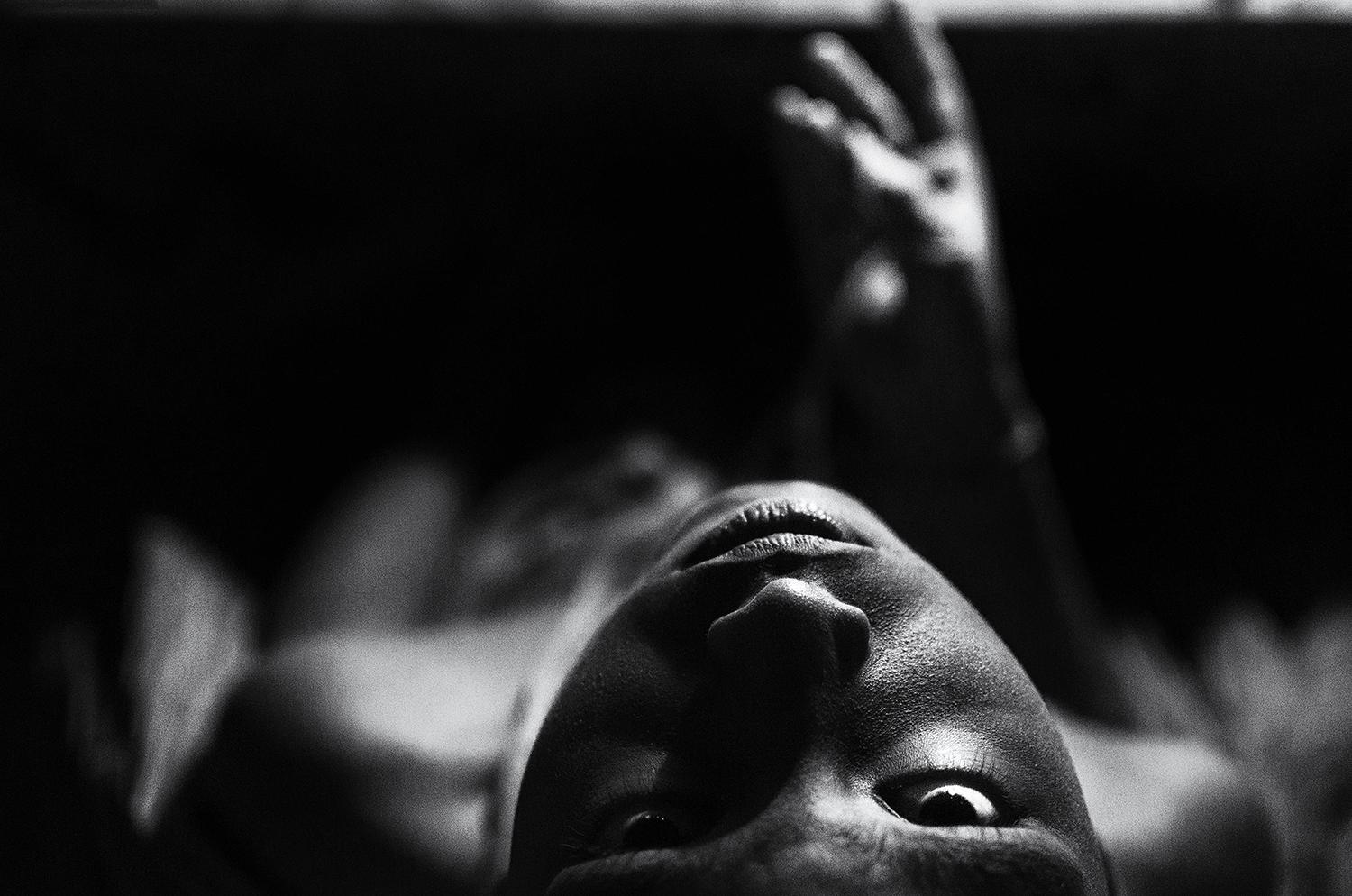
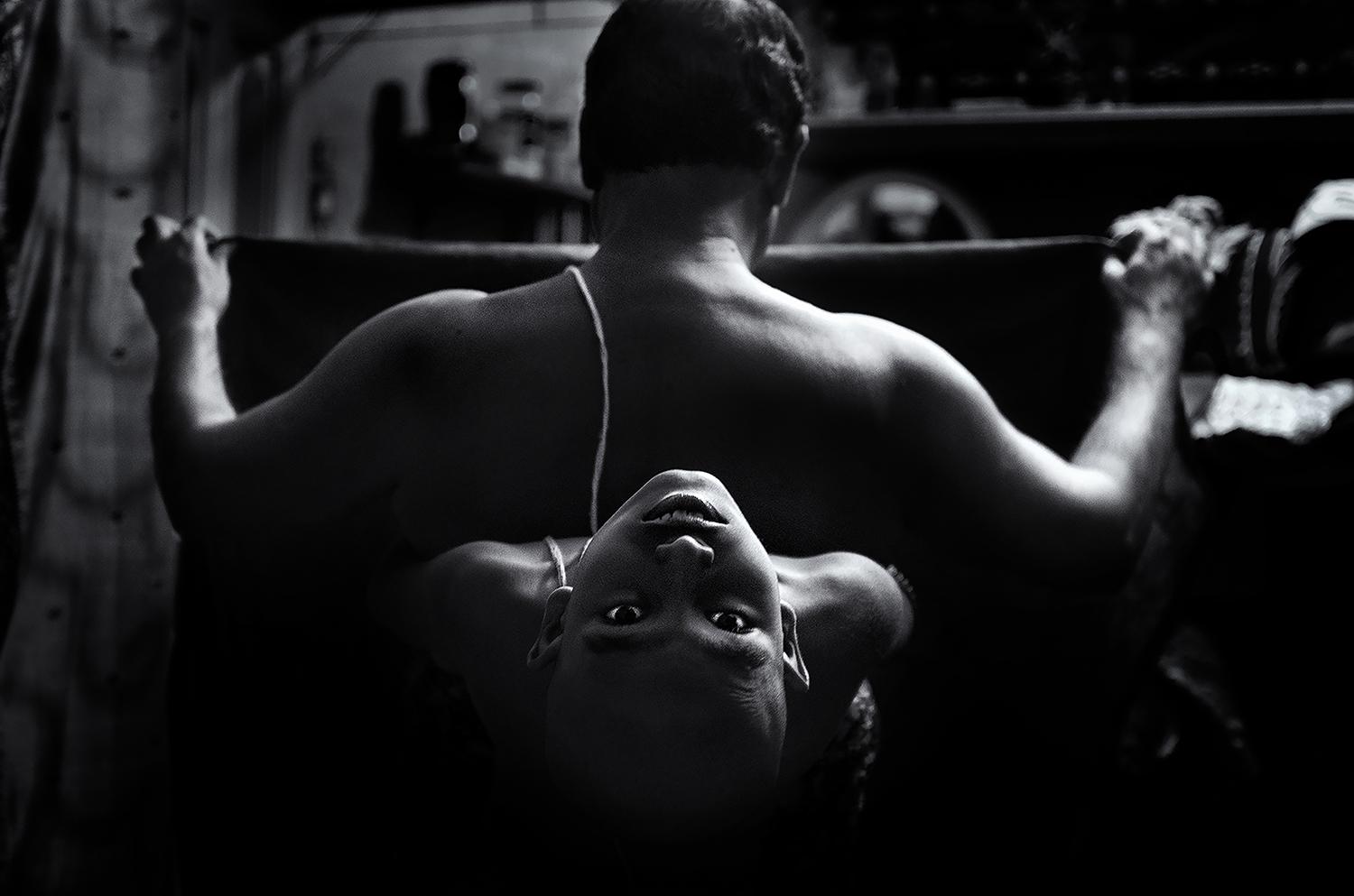
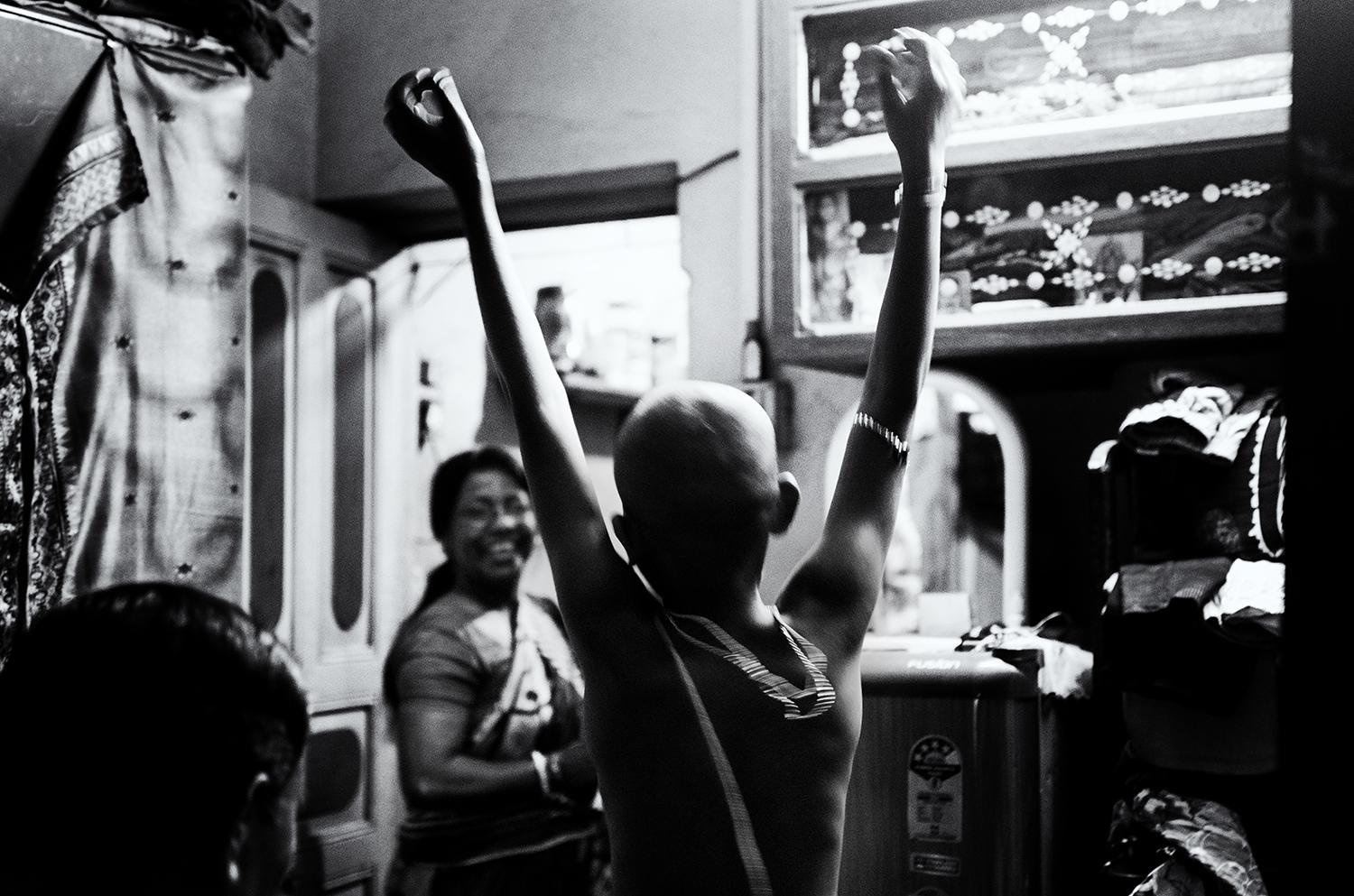
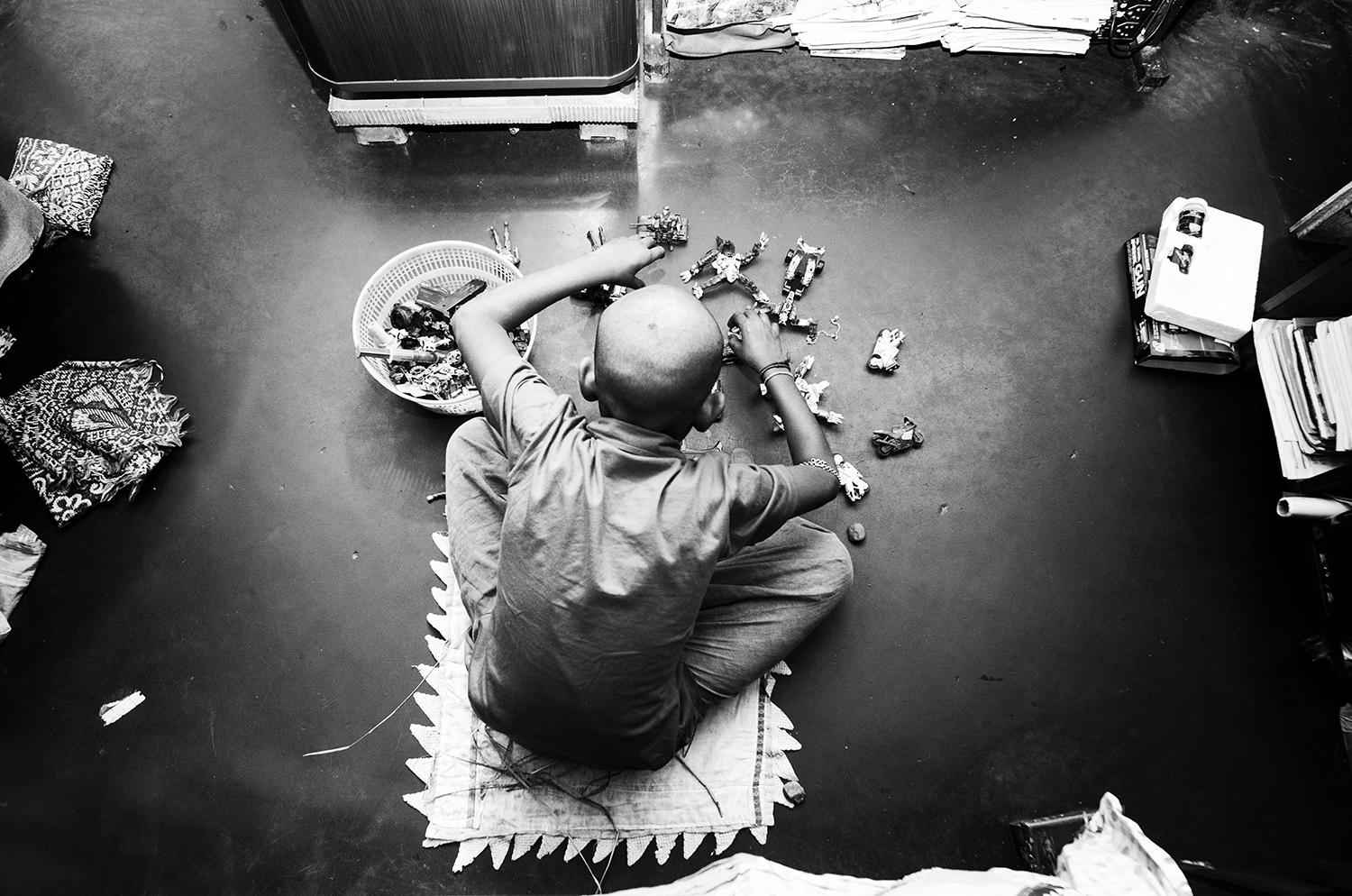
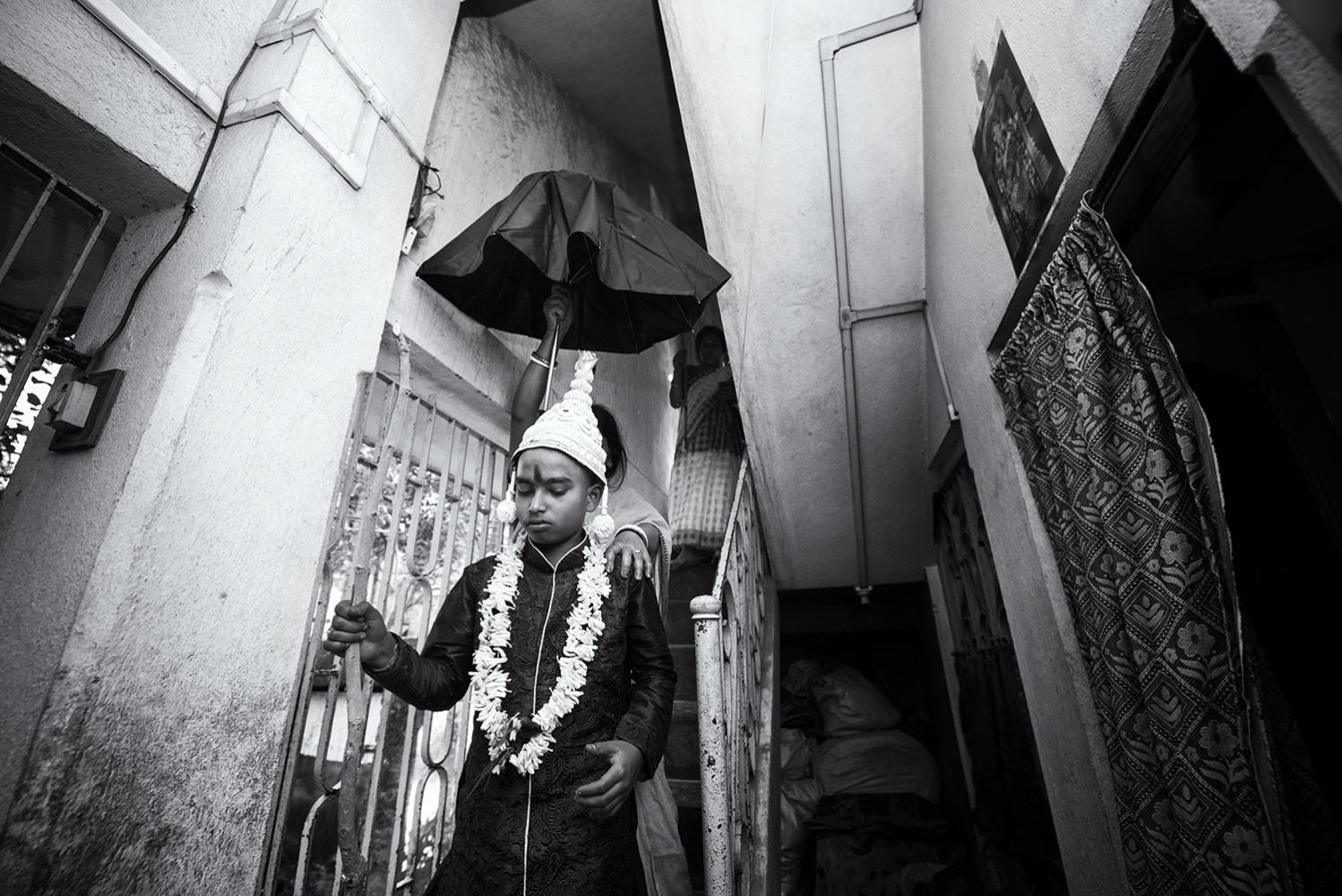
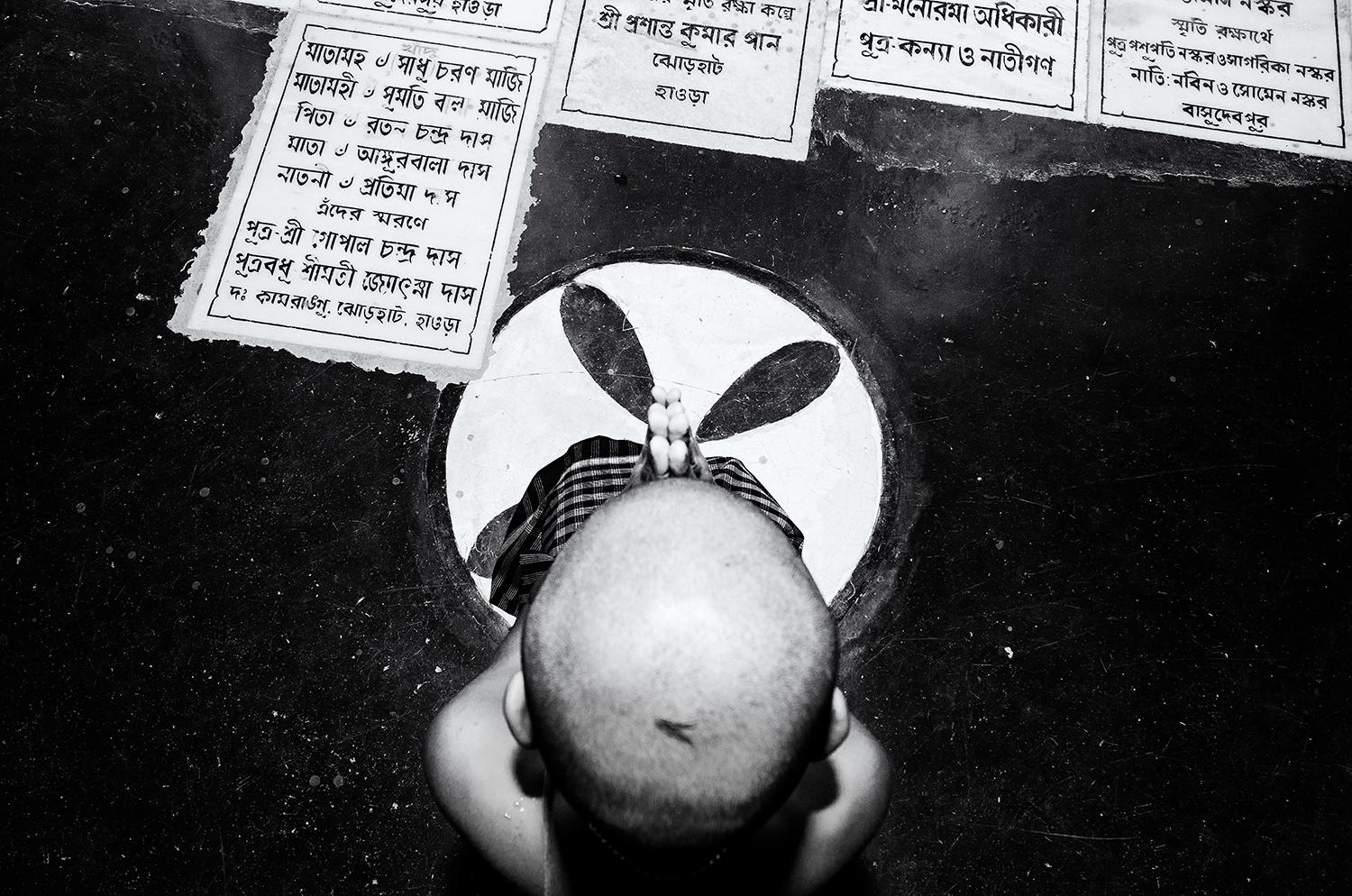
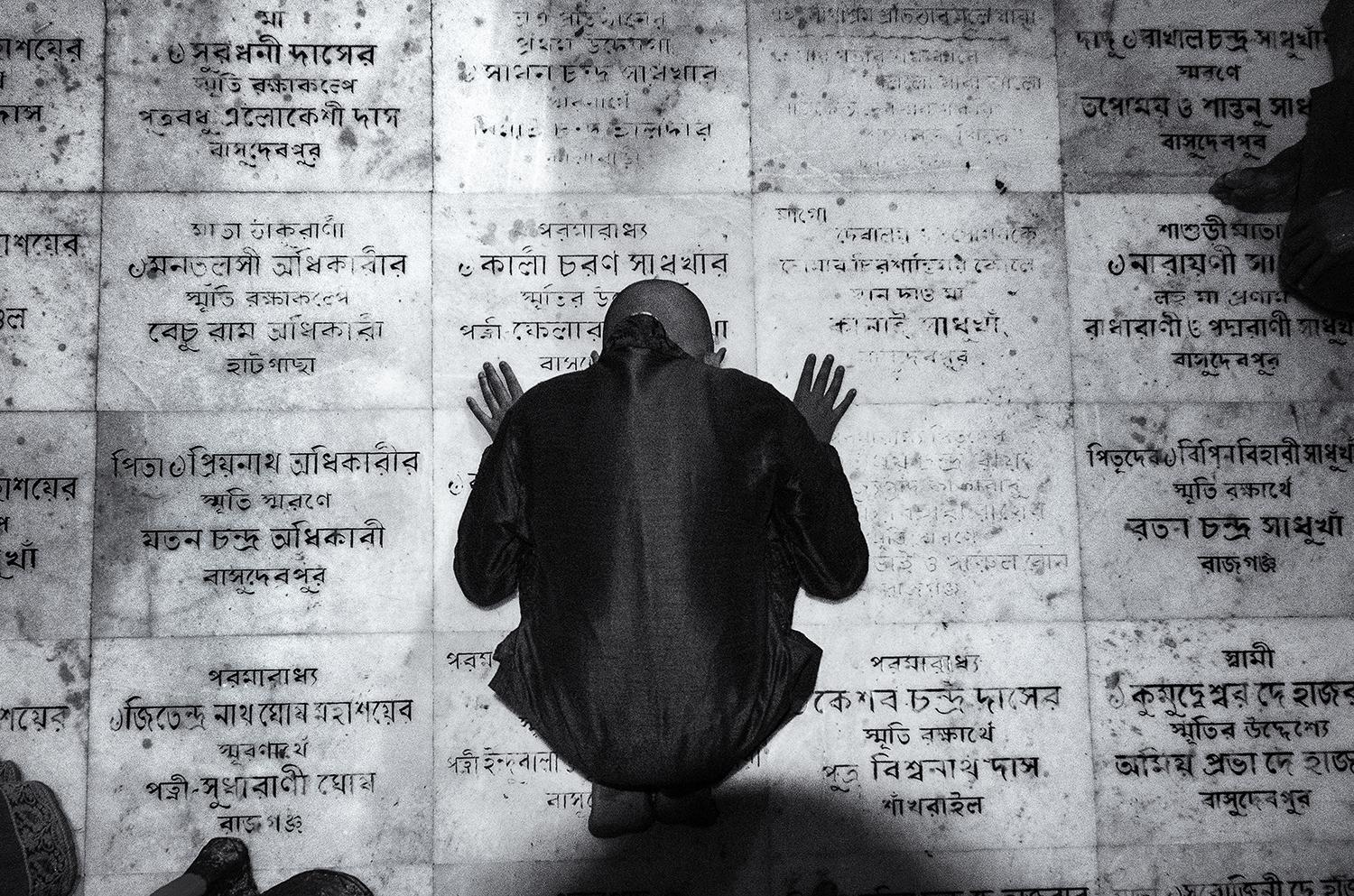
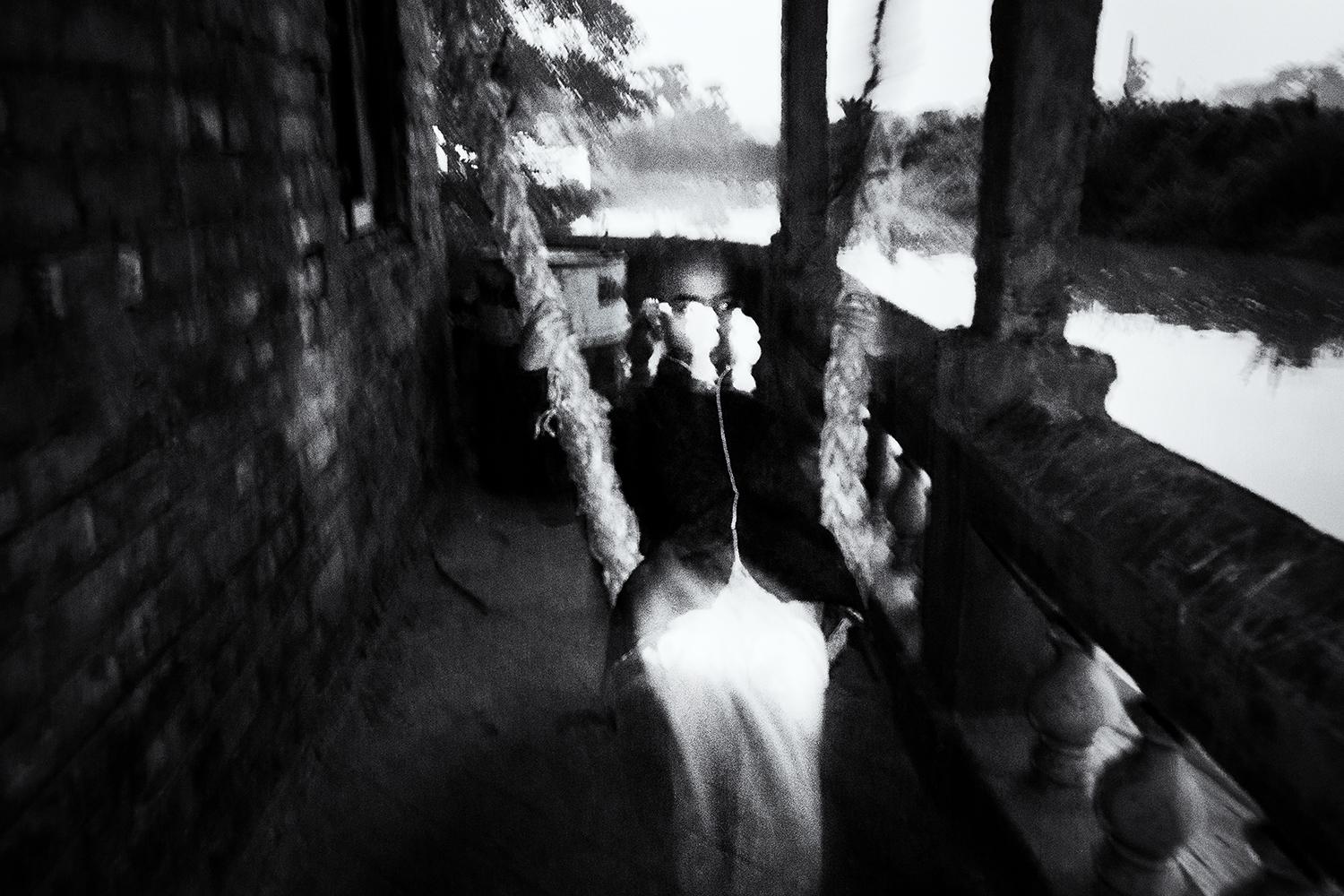
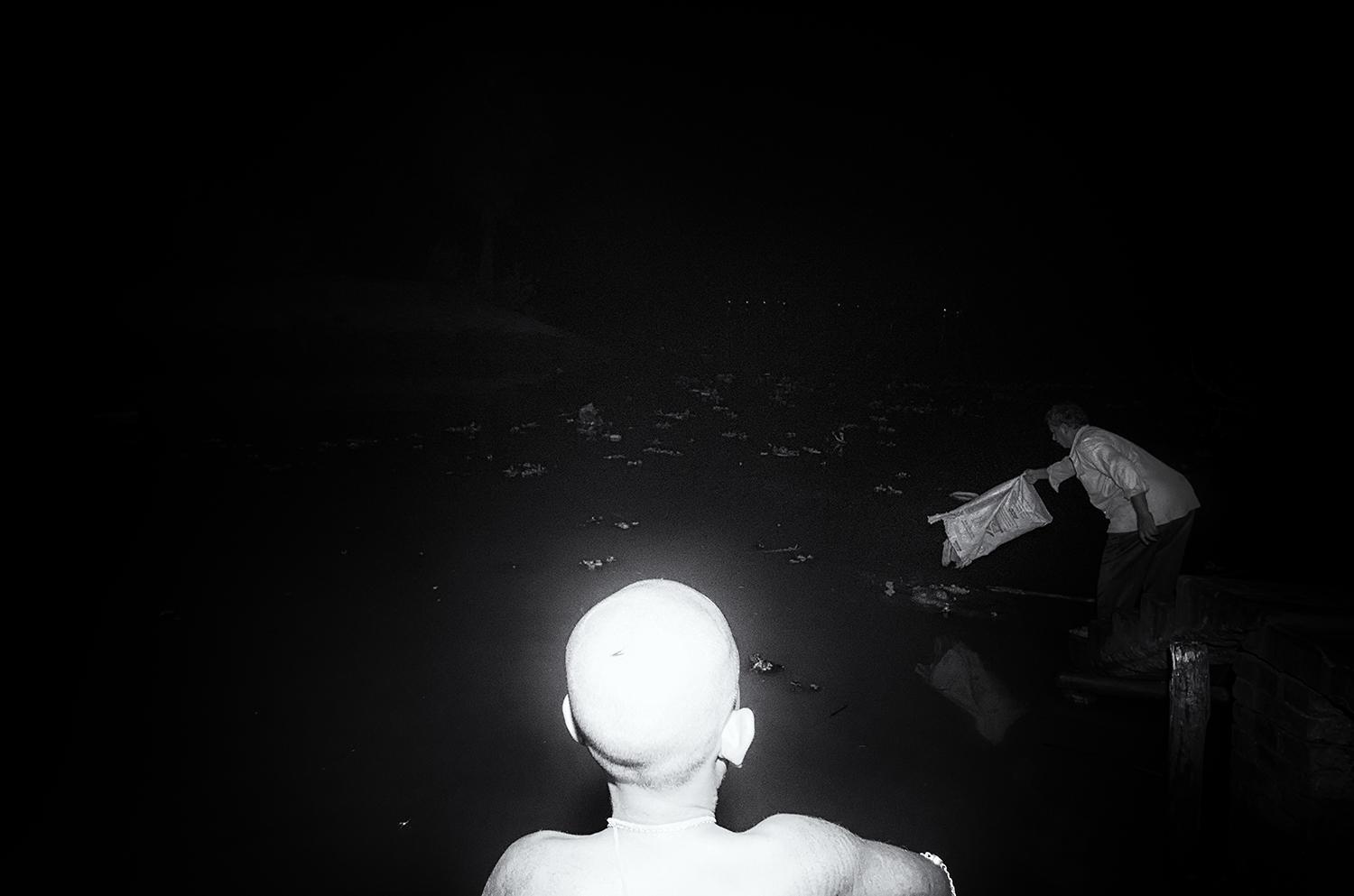
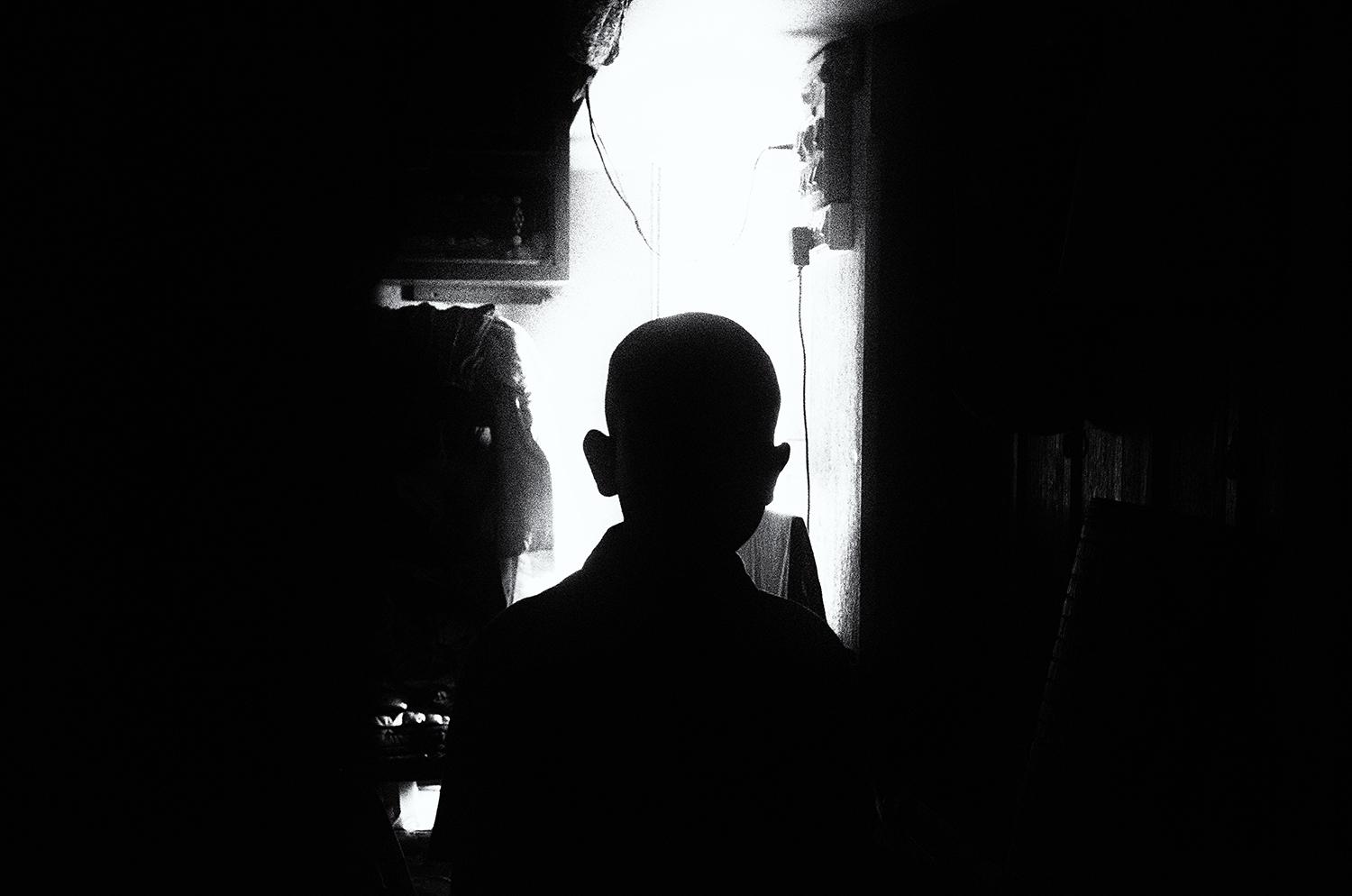


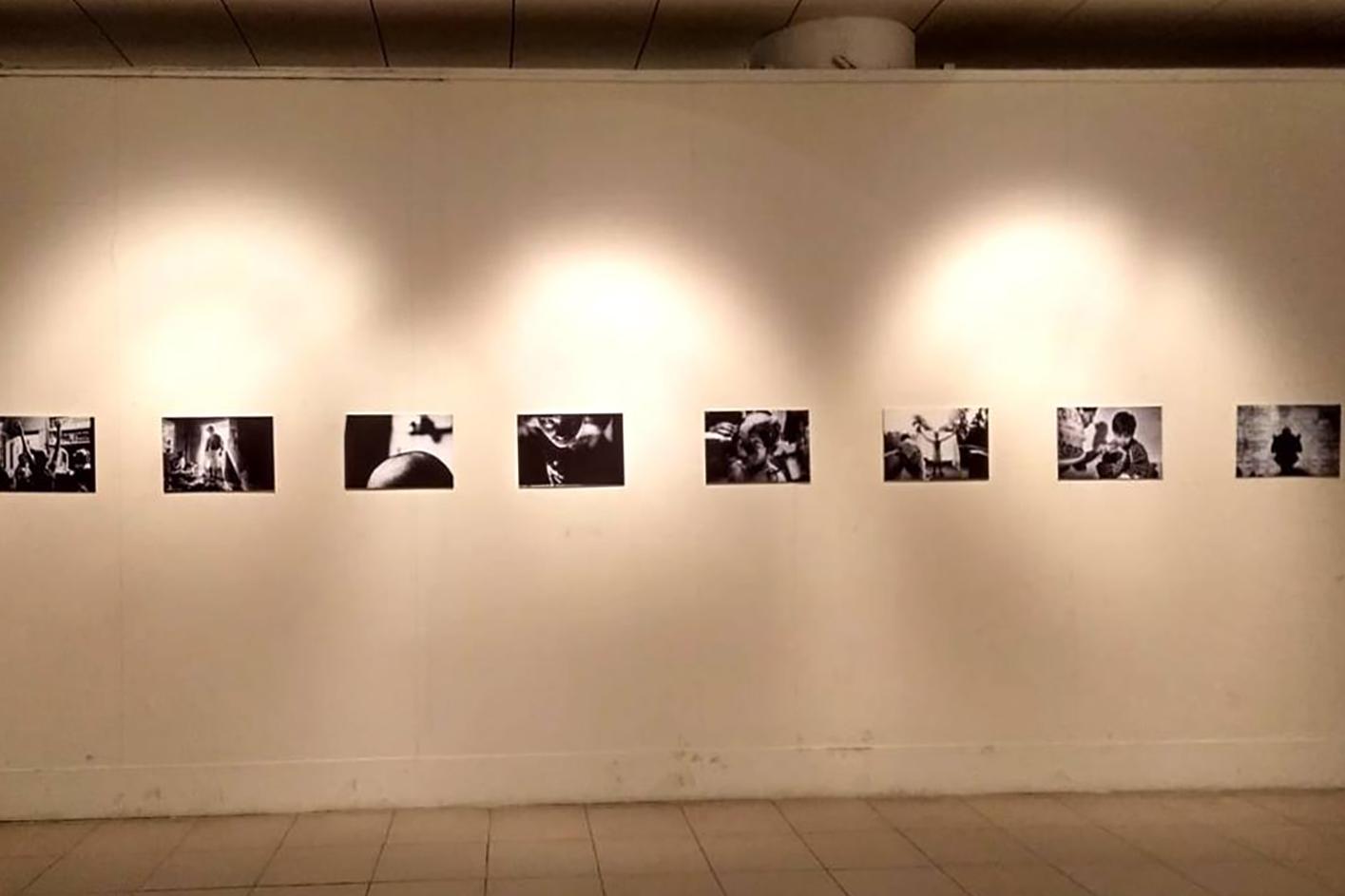
Xposure International Photography Festival, Sharjah, UAE (2018)
Dhaka International Exhibition (2019)
7th annual New York Portfolio Review (2019)
Upanayan is a standout amongst the most vital Smaskaras (rites of passage) in a man's life. "UPA" signifies "CLOSE" and "NAYANA" signifies "TO BRING". Tlhis is also called the "SACRED THREAD CEREMONY". It is one of the traditional saṃskāras (rites of passage) that marked the acceptance of a student by a guru (teacher). The sacred thread (yagyopavita or janeu). consisting of a loop made of three symbolically knotted and twisted strands of cotton cord, is received by the boy during the ceremony, generally between the ages of 5 and 24, and it is worn throughout the lifetime, normally over the left shoulder and diagonally across the chest to the right hip that he continues wearing across his chest thereafter. Upanayanam marks the beginning of Brahmacharya, means "About to lead by learning the sacrifice". To simplify, it is a ceremony in which a person is declared as about to ‘lead’ and to Lead, one must learn or train to do ‘sacrifices’ involving Niyamas (procedures) and Karmas (duties) of personal, family and society.As a part of the process of ceremony, haldi (Turmeric) is applied to the body which is considered auspicious and also signifies protection. Before the holy bath, the ritual Mundan, commonly known as head shave takes place. Hair is seen as a matter of pride and by offering it to God, it is believed that we get rid of our pride and arrogance. Homn (lighting Sacred Fire with wood and oil) is being performed to invoke the gods for their blessings and to also obtain favors from them. Gayatri Mantra is taught by Guru (The Master) under wraps to ensure the boy listen attentively. According to the Vedas if one regularly performs "jap"or chants this mantra one gains an inner strength. A Dand (holy stick) is being given as inseparable companion. It is given to take care of the household and also comes in handy in times of dangers as a weapon for self-protection. The idea of counseling lessons of humility, service, love, and respect for the guru and limit from common joys, important for an individual in his journey through life is the basic truths behind the performance of Upanayan.
The upanayana was restricted in many medieval Indian texts to the upper three of the four varnas (castes) of society — brahmins, kshatriyas and vaishyas. However, Vedic period texts such as the Baudhāyana Grihyasutra encouraged all members of society to undergo the upanayana, even (manual workers) shudras. Women were encouraged to undergo upanayana in ancient India before they started Vedic studies or before their wedding.























Xposure International Photography Festival, Sharjah, UAE (2018)
Dhaka International Exhibition (2019)
7th annual New York Portfolio Review (2019)
Upanayan is a standout amongst the most vital Smaskaras (rites of passage) in a man's life. "UPA" signifies "CLOSE" and "NAYANA" signifies "TO BRING". Tlhis is also called the "SACRED THREAD CEREMONY". It is one of the traditional saṃskāras (rites of passage) that marked the acceptance of a student by a guru (teacher). The sacred thread (yagyopavita or janeu). consisting of a loop made of three symbolically knotted and twisted strands of cotton cord, is received by the boy during the ceremony, generally between the ages of 5 and 24, and it is worn throughout the lifetime, normally over the left shoulder and diagonally across the chest to the right hip that he continues wearing across his chest thereafter. Upanayanam marks the beginning of Brahmacharya, means "About to lead by learning the sacrifice". To simplify, it is a ceremony in which a person is declared as about to ‘lead’ and to Lead, one must learn or train to do ‘sacrifices’ involving Niyamas (procedures) and Karmas (duties) of personal, family and society.As a part of the process of ceremony, haldi (Turmeric) is applied to the body which is considered auspicious and also signifies protection. Before the holy bath, the ritual Mundan, commonly known as head shave takes place. Hair is seen as a matter of pride and by offering it to God, it is believed that we get rid of our pride and arrogance. Homn (lighting Sacred Fire with wood and oil) is being performed to invoke the gods for their blessings and to also obtain favors from them. Gayatri Mantra is taught by Guru (The Master) under wraps to ensure the boy listen attentively. According to the Vedas if one regularly performs "jap"or chants this mantra one gains an inner strength. A Dand (holy stick) is being given as inseparable companion. It is given to take care of the household and also comes in handy in times of dangers as a weapon for self-protection. The idea of counseling lessons of humility, service, love, and respect for the guru and limit from common joys, important for an individual in his journey through life is the basic truths behind the performance of Upanayan.
The upanayana was restricted in many medieval Indian texts to the upper three of the four varnas (castes) of society — brahmins, kshatriyas and vaishyas. However, Vedic period texts such as the Baudhāyana Grihyasutra encouraged all members of society to undergo the upanayana, even (manual workers) shudras. Women were encouraged to undergo upanayana in ancient India before they started Vedic studies or before their wedding.
